#William Shakespeare between Tragedy and Comedy
Explore tagged Tumblr posts
Text
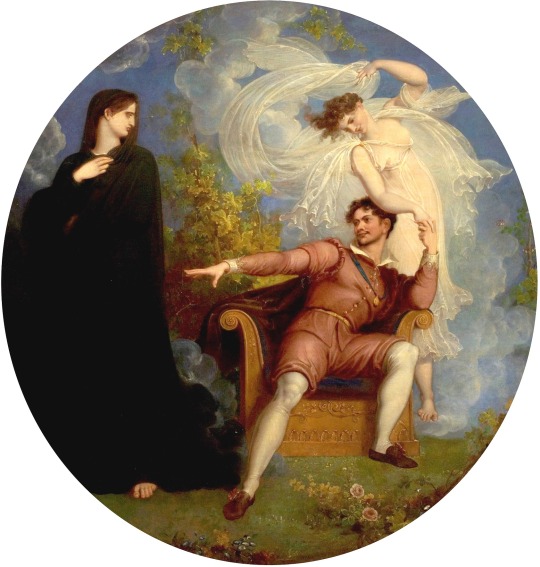
Richard Westall - William Shakespeare between Tragedy and Comedy, 1825.
#Richard Westall#William Shakespeare between Tragedy and Comedy#apparition#muse#hooded#vision#dreaming
14 notes
·
View notes
Note
jason todd x reader please 😔
The ShopKeep and the Hobbyist [J.T]
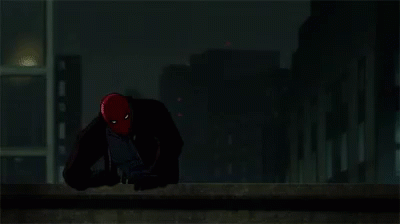
Summary: Jason's been going to this bookstore for long enough that he's developed a bit of a reputation with them. If only the cute cashier would understand he's trying to flirt but as fate would have it, one knife chase later, and maybe they're more than worker and costumer. Pairing: Jason Todd x Male!Reader WC: 7.3k TW: use of fag but its a quote
Jason traveled out of Gotham once a week, always on a Sunday, always to the same location for three entire hours. Everyone knew that Sunday from noon to four— accounting for traffic and eating out that might happen, that Jason was absolutely unavailable. Unless you physically went to track him down.
But that’s yet to happen.
It’s Sunday and Jason arrived at the normal spot earlier than usual. Traffic was amazing, no accidents on the way out of Gotham, and the highway was thankfully void. He parked his bike in his normal spot, right in front of the store, and lifted the visor to the helmet before heading inside.
The Open Book had always welcomed Jason, even when the shop was closed in the middle of a blizzard. And he helped where he could (Wayne Enterprises always made a large monthly donation to the shop and for some odd reason, someone had gifted the shop a fake bird that is able to stop any thefts(odd)).
“New shipment came in today,” The store owner's grandson greeted him, leaning across the counter to grab at the basket of free candies the shop offered. “Snagged this vintage-looking book collection for ya.” Ever since word that a Wayne kid visits the bookshop, sales have grown so it’s hard keeping certain items in stock. Especially the fancy-looking titles.
“Do tell,” He grabs a bite-sized chocolate and rips the packet open while you set your lollipop wrapper into your apron pocket before ducking under the counter.
“Shits heavy,” You grunt, slamming the box onto the table and read the label. “Uhh, ‘William Shakespeare, Comedies, Histories, & Tragedies. Published According to the True Originall Copies, 1623.’ Original is spelled wrong, though,” You look up at him and pause at his wide-eyed, clearly shocked expression.
“Shakespeare fan?” You ask, opening the flap to the box. “There’s a bunch of them in here. I think this was someone’s collection.”
“Do you know how much it’s worth?” Jason laughs, peering into the box, and then whistles.
“Probably a hundred at the most,” You shrug and he slaps the table with a loud Ha! that makes you look at him, crossing his arms. “Fifty?”
“Try nine mil,” The lollipop falls from your mouth as you look from Jason to the book collection.
“For all of it?” You gape.
“For the top book,” He corrects. “Thank god you snagged it before someone who cared did.”
“Yeah,” You sigh, staring at the book and taking in all of the details. That’s more than you’ll ever make in a lifetime. “What should I do? Do you want it?”
“Want it like I need air,” He admits, handing you another lollipop. “But you should probably auction it, get a stack and whatnot.”
“Grams would get pissed,” You shake your head and slide the box towards him. “Believes books should be read, not stored as an artifact, yknow? Think she marked this box as a hundred, want me to ring it up?” He looks at you and takes his helmet off so you can fully see his are you stupid? look that’s plastered on his face.
“(Y/n),” Jason slides the box back. “This is worth more than every single book in here!” And as much as he pained Jason to say that, he knew it was true. With over two entire floors filled with books, they were but a drop in the bucket compared to that singular box sitting between the two of you.
“It’s just paper and ink,” You shrug, staring at the box. “Besides, she’d get mad if I did and I can’t exactly hide nine million dollars!” Sighing through his nose, he agrees to buy the box and has you set it aside while he goes about shopping.
“You’re staring,” Someone tells him as they walk past and his head spins around to see who it is. It’s one of your younger sisters, around twelve or thirteen, if he remembers right.
“Wasn’t,” He tells her and picks up a book. “I was looking at this book!” She turns back to him and raises her eyebrows at the title before grinning.
“Didn’t take you as an Ice Breaker fan,” She chides and walks away while Jason stares at the book. It could’ve been basically any other book. Putting the book back, Jason returns to his actual book shopping which only takes ten or so minutes. He knows his bag is going to be heavy with the Shakeseapre books so he can’t get too many other books this week.
“Light load,” You comment, scanning the books. “You bought this one a month ago, too.” You note, holding off on scanning A Good Girls Guide to Murder.
“My sister wants to read it,” He explains, flipping through the pages. “And she likes to dogear pages.” Cringing, you scan the book and read him his total before leaning against the counter. It’s a large enough counter that most of your body can rest against it while he pays while you use your phone to order some lunch.
“That place sucks ass,” Jason comments as he’s putting his card away. You roll your eyes and look up at him.
“I’m hungry as shit and there’s no good places around within a reasonable price, this place has decent grilled cheeses.” You justify and he finishes paying.
“What would you have gotten?” He muses, leaning against the counter so the two of you are face to face. Staring at the sad picture of a grilled cheese you huff.
“Five guys,” You admit, looking back at him. He nods, silently urging you to continue while looking you up and down, his eyes slowly moving. You also don’t notice it or the small smile on his face when you don’t move away from him. “Strawberry milkshake and grilled cheeseburger.” You finished.
“No fries?” He asks and you shake your head.
“I don’t really eat fries from there,” You admit, fiddling with the skin around your nails.
“Sounds good,” He tilts his head a bit, grinning so his canines are showing. He watches as your eyes dip once and then twice to his lips before they finally stay on his face.
“It’s fucking good. An arm and a leg, but still,” Standing up, you groan and stretch. He stands up too and puts on his helmet. You watch and wait for him to dip his head down before giving his head two pats. For good luck, of course.
When he leaves, you return to your seat and look over the shop. There’s a dozen or so people inside, some people who are clearly not there for books as they’re recording those random interviews with the tiny microphones and such. You should really stop them, maybe put up a sign or something. But they’re leaving anyway. So it doesn’t really matter.
“Did you kiss?” Your sister asks, walking over to grab one of the candies.
“Girl,” Your face scrunches and she tosses the wrapper at you but it falls short.
“Just saying, seemed awfully close.” She shrugs. “I would’ve made a move on him a long time ago.”
“You’re ten.” Huffing, she huffs back and puts her hands on her hips.
“Nineteen,” She corrects. Making a talking motion with your hand, she smacks it away and throws a fireball candy at you. “That’s why you’re forty and a virgin!”
“Neither of those are true,” You stress, tossing the candy back into the bowl. “And didn’t you just get dumped by some loser who said he’d absolutely eat a turducken covered in chocolate?” She rolls her eyes and walks behind the counter to sign into work.
“I dumped him,” She corrects. “Unlike your failed relationship with the guy who wanted you to pretend to be a woman.”
“Too low,” You sigh, shaking your head. “Too low.”
—
With your lunch break in full swing, you’re upstairs in the break room watching some crappy straight-to-DVD movie your father had bought years back while eating the very sad grilled cheese when the door opens. Half expecting it to be another family member, you don’t look away from the TV and give a small hey but when no one replies you look towards the door and hum surprised to see Jason there. Even more so on who let him in
“Missed me?” You grin, watching as he closes the door behind him and rolls his eyes.
“Little delivery,” He corrects and motions for you to turn back to the movie. You do, albeit a bit hesitant to do so, but you try not to look back when you hear him getting closer. “Close your eyes, too.” He adds when you look as far back as you can without turning your head. Groaning, you cover your eyes with your hand just to prove you’re not peeking and hear him set something down on the spot next to you.
“See you next week!” He pats your back before snatching the half-eaten grilled cheese from your hand and you take it as a sign you can open your eyes. You’re not even upset he’s eating your lunch, it wasn’t good. Looking at what he had set down, you see the familiar white and red bag and crack a smile.
“You got me Five Guys?” Your head whips to the door but it’s already shutting and you can hear his heavy boots quickly running down the stairs. Turning back to the bag, you pull your phone out and scroll to find his contact.
Thank you
we feast tonight
The two of you don’t text much, mostly if he had forgotten something in the shop or given him a heads-up that the bookstore was closed for the day. Hell, his contact name is still Jason (bookstore fav). But he reads it immediately and thumbs up the last text.
This grilled cheese sucks by the way
It feels like plastic
Probably is lol
While Jason is very much a regular at the shop, you don’t really remember when he first started to frequent the shop. Just that one Sunday, you had seen the time and noticed he was late to the shop. He’d come in almost three hours later than he normally did and watched as you sighed, tossing his favorite candy at him before ushering him to the counter. He listened as you told him that next time he is late he needs to text or you’d send out an amber alert yourself.
He truly hadn’t thought anyone had noticed the change in his routine. Especially someone he only saw once a week. It had been a really shitty night for him and an ever-shitter morning, feeling like a ghost wandering through Gotham, living in a life he never should have.
He apologized with a grin and gave you his number. He also spent a little extra time in the shop, loving the familiar smell around him. He loves the bookstore more than he loves his guns, more than he loves most things really. It’s the only normal thing in his life and truly, Jason doesn’t know what he’d do without it. Without you, honestly. He’s only ever there when you are and a place is only as welcoming as the people inhabiting it.
Which is why he’d picked up the 2 am phone call so fast.
“Jason?” You whisper shout into the phone. He can hear some harsh wind and some distant shouts in the background, but it took much less than that for him to abandon his patrol and start over to you. “Shit— I’m sorry but I don’t know who else to call.” You add, the clarity hitting that during an emergency you called the guy who lived nearly half an hour away on a good day.
“It’s okay, doll,” He replies and you dare to glance behind you. Maybe they’d given up by now, but no. “What’s wrong?” He asks as you round a corner. “Where are you?” He quickly adds and you glance at the road signs.
“Uhh, heading towards Second Ave and Belcher Street. My friend's boyfriend thinks she’s cheating with me and him and his friends are chasing me,” You explain.
“Guns?” He asks, already leaving the Gotham border.
“No,” You huff, the strain of running heavy on your chest. “Just knives.”
That’s good, he tells himself. Distance is what you should be focusing on. But he knows that the regular person cannot run for nearly as long as he can and realistically, you’re bound to get tired much sooner than multiple people.
“Is there a crowd nearby?” You can hear some muffling to his voice but that’s honestly the least of your issues. “Maybe a club or hospital.” He adds when you don’t respond fast enough.
“No,” You strain. “Just apartments and shit. God, fuck! Do you think I should climb the fire escape?” There are several ahead of you, and one of them is low enough for you to grab.
“Can you?” He asks.
“Yeah— yeah,” Jumping up, you pull yourself up and start climbing up to the roof. “Shit, I’m really high up,” You pant, daring to look over the edge and see the guys climbing up. “They’re climbing up,” You tell him, quickly backing away and trying to find an exit. What type of roof doesn’t have a fucking exit?
“I’ve seen people jump from roof to roof,” You're thinking out loud at this point, trying to find some type of solution to your stupid idea. “Can’t be that hard, right?”
“Depends on the distance,” He truthfully tells you and you look at the two nearby roofs.
“Definitely too far. I’m fucked.”
“Still on Second and Blecher?” He asks and you mutter a yeah when you see them reach the roof.
“They’re up,” You mumble. “I could jump and live, yeah?” Glancing to your left, you see a dumpster and reassure yourself that you’d be fine.
“Do you think you can come back down the fire escape?” He asks. “Is there one behind the building?” Looking behind you, you let out a loud sigh.
“Yeah— yes, heading down.” Rushing down as fast as you can, you reach the ground as they’re in the middle and run back into the main road.
“Head back down the way you came,” Jason instructs. He’s only five minutes away at this point, maybe three if he tries hard enough. He just needs you to buy five more minutes.
“Okay,”
Running for what felt like an eternity, your legs are burning and your chest is tight. Maybe that one time you lied during your physical exam was coming back to bite you.
But they’re still chasing you and Jason is still guiding you. You’re sure you’re about to pass out when a motorcycle drifts in front of you.
“Red Hood?” You gape, panting. The fuck?
“Come on,” You hear him and Jason say. You’ll worry about that once you’re away from those absolute track-and-field freaks chasing you. Getting on the motorcycle, he holds your thigh with one hand before pulling off.
The ride is silent as you’re catching your breath and just making sure you’re okay in general. Aside from the insane burn in your calves, you’re fine. The ride does a lot to calm you down, by the time he reaches the shop your head is pressed to his back and you’re holding him not as tight as you were before.
“I don’t know your address,” He admits and you laugh into his back. After all that happened it’s a little humorous that your biggest issue is Jason getting your address. You give it to him and it takes him a second but he has the route mapped out before he pulls back onto the street.
“I’m staying the night.” He tells you as you get off of the bike. You don’t protest, not in the slightest. You’re far too tired to do so anyway. Instead, you wave him over and head upstairs. He tries to hide his helmet from the camera view but you tell him they don’t work.
“This guy got robbed two days ago; whole building found out the cameras are fake,” You explain while leaning against the elevator wall.
“And you feel safe?” He incredulously asks, looking you over. Even buildings in Gotham have working cameras.
“I have a gun,” You shrug while he looks at you with more of an analyzing gaze, a little surprised you’d have a gun. “And no valuables. My electronics are all secondhand for that exact reason.”
“So, steal the couch?” He jokes.
“If it can fit through the door, it’s yours!” Patting his arm, you exit the elevator and fish out your keys. Thankfully you hadn’t dropped them during the chase.
“What happened?” He asks as soon as you close and double lock the door. Looking at him, you drop your phone and keys onto the kitchen island before heading back to the door.
“My friend, Gina,” You start with a sigh, kicking your shoes off. “She used to be my beard in high school. But we never officially broke up, I guess because she posted a story saying happy six-year anniversary. With a bunch of pictures of us together. Her boyfriend saw and he’s always been…” Rolling your hand, you open your closet and grab a new outfit. “He thinks I’m lying ‘bout being gay. Because I’m too… I dunno what he thinks. But he says I don’t look gay and he’s never seen me with a guy before.” You explain with a huff. “Not my fault I’ve been single for two years, y'know. I got school and work and whatever!” Slamming the closet shut, you sigh and apologize.
“I’m gonna take a shower, feel free to snoop and prod. And take the boots off, I just moped.”
“Course,” He doesn’t move an inch as he unties his boots and walks to the shoe rack to set them down. You thank him and head into the bathroom.
“If you gotta piss or shit, go ahead. I got a curtain and a strong scent blaster plugged in.” You tell him at the doorway to the bathroom.
“Noted.” He laughs but it drops once the door closes.
He finds himself making sure the windows are locked and the curtains are properly drawn. He grabs his phone and saves your address into his personal map before he goes to check to see what type of security measures you have. And there’s not many, just a gun that’s badly hidden in your bedside table and the extra lock on the door.
But there’s not much to the apartment, the decor is extremely minimal but he remembers you talking about saving to buy a house in the countryside. Or at least outside of a city. Own land and all that.
He can’t decide if that’s good or not, there’s nothing to steal for sure, but it’s also really sad. There’s no personal touch to your apartment, it reminds him of one of his safe houses.
He settles himself into the couch once he’s checked over everything, listening to the sounds of the shower and eventually, he hears the shower turn off.
When you return to the living room in a pair of shorts, you’re a little surprised that Jason is still there.
“Bruce Wayne as Batman makes a lotta sense,” Opening the fridge, you pull out two water bottles before setting them on the counter.
“(Y/n),” Jason stops that conversation. “You should file a police report.”
“Fuck is that gonna do?” You huff, closing the fridge and opening the freezer to grab a popsicle. “Gina will hate me, cops will just forget to file it, and then I get harassed.”
“They tried to kill you,” He stresses, blocking you from moving away from the fridge. You stare at him, a little upset that he’s caring so much. You feel bad for even calling him and sending him out of his way. And now he’s staying for who knows how long. Not to mention now you know his biggest secret— a family secret at that, one that you can tell one person, and suddenly the whole world knows.
“Happens every day,” You shrug but honestly, yeah, that shit scared you. His face drops and he snatches the popsicle from your hand before tossing it on the counter to your left.
“No. Not to you. Not to most people. So what if Gina hates you afterward? Do you want a friend that’s known you since high school who would rather side with her crazy boyfriend?”
“Of course not!” You groan. “But it’s Gina. She’s always been there and— and this is a one-time thing,”
“You sound ridiculous,” He tells you as he walks out of the small kitchen and into the living room. “Trying to kill someone isn’t a fucking one-off. It’s a crime, a legit crime. Has Gina even checked if you’re okay?” He points to the phone that’s still on the counter; the same phone he knows for a fact hasn’t buzzed once.
“No.” There's no need to check your phone, you already know there’s nothing from her. She’d never text you first. He nods as if to say there’s your answer.
“Look, Jason. It was scary as fuck,” You admit. “But I’m good. And I thank you, but you should go home. I just…” Looking off to the wall. “I don’t know why I called you, I feel like shit for dragging you away from your home.”
“I was spending my night watching Harley and Ivy dry hump in front of a newly exploded power plant. You didn’t take me away from shit.” He blinks before heading to the couch. “Besides, it’s too late to drive back. I’m beat,”
“You’re lying,” You deadpan, tossing a water bottle between your hands.
“Am I?” He fake yawns, leaning back on the couch. “Can I get a blanket?” Clearly, he’s not going to leave, and it would be bad as a host to not make him comfortable. Asshole.
“Fine,” He grins as you walk away.
“Oh and Jason, Gram’s told me about the payment plan you set up. Taking advantage of a woman who can’t speak English is rude. She thinks you’re paying five dollars a week for some back dues you owe.” It was actually five hundred thousand dollars a week, which was absurd but hey, if he insists.
“It’s just nine million,” He calls back. “Not even my money and B won’t notice it’s gone.”
Just nine million, you repeat to yourself as you find a suitable blanket. It’s one of those thick fur blankets with a tiger on the front.
“The couch is a pull-out, by the way.” Heading back into the living room, you tuck the blanket under your arm. “I’ve used it like once. It’s pretty comfortable unless you want the bed.” You add, setting the blanket on the edge of the couch. There’s no coffee table, you don’t see a reason for one.
“I can sleep on gravel, doll. I’m fine, thank you.” For some reason, his eyes are having a hard time staying on your face but you’re busy walking back into the kitchen to notice.
“If you’re hungry make anything, I’m going grocery shopping in two days anyway.” Tossing the popsicle back into the freezer, you lean against the counter and watch him. It’s a little staring contest you have going on. His eyelashes are nice, real pretty boy-esque.
The silence and tension in the apartment is broken by four rapid knocks to the front door followed by a worried: “(Y/n)?”
“Gina,” You tell Jason as he’s already off of the couch and halfway to the front door by the time you stand up straight. When you walk up behind him you pause, when did he have time to grab a gun? But he’s looking through the peephole before looking back to you and holding up two fingers. You almost laugh, this isn’t some military operation; just a… friend? at your door.
“Please,” Gina says through the door. “We just— K wants to apologize,” Huffing, you look at Jason who’s standing behind the door, one hand on the top lock. He truly doesn’t want to unlock it, but it’s your apartment. Your call.
“Says who?” K snaps, his voice a lot more muffled than hers is.
“You’re going to fucking apologize.” She snaps right back.
He raises an eyebrow and you nod to the door against your better judgment. He unlocks the door and stands in front of them, really standing over them with his damn height, the arm holding the gun hidden behind the door. You can basically hear Gina pause when she sees him.
“Who are you?” Gina asks, looking him up and down.
“A friend.” He answers simply and then looks over to you. “Your friend is here.”
“Thanks, Jay.” You smile and usher him into your bedroom with two quick glances. “Gina,” You greet a little harshly as you stand at the door. “Kyle.” You look at him for only a second.
“It’s K.” He corrects.
“Can we come in?” She asks, stepping forward. “I explained everything to K and he’s sorry.” She looks back at him and he’s just standing there with this stupid look on his face.
“Is he?” You ask, looking at Kyle. “Because when he was screaming: I knew you weren’t a fag; I’m gonna cut your dick off; stop running bitch; and since you wanna pretend you’re a fag come and taste our dicks he just didn’t seem real sorry.” She cringes, he hadn’t said that part through the yelling they were doing.
“I don’t wanna lose you,” She places a hand on the door, not that you were planning on closing it just yet. “Let us in and he’ll apologize.” Sighing, you look at her and frown. Between not even texting to see if you’re okay and then coming over with the audacity to think that a fucking apology would smooth things over, you were peeved.
“You’re losing one of us tonight. Him or me.” She takes a step back and frowns, her eyebrows knitting as your words settle in her. But at that moment, you knew the friendship was over. It shouldn’t ever take that long for an answer like that.
“(Y/n), he’s sorry!” She almost shouts, shouting as if you had given her this impossible task. You want to reply, you want to yell, and to get into it then and there. But it’s no use. Your neighbors are sleeping, you’re tired, and far from a mood where you want to interact with them. As such, you close the door and put the locks back on.
She shouts some things from the other side but you’re not listening as you enter your bedroom.
Jason was standing right next to the door, startling you. If he hadn’t been so close you wouldn’t have seen him in the darkness.
“Is that a requirement for vigilantes?” You ask, clutching your chest in an exaggeration. “Y’all are fucking spooky,” Tossing yourself onto your bed, you stare up at him.
“She’s still at the door,” He ignores the comment on his family business once again. Instead, his eyes trained on your front door, watching and waiting to see what their next move is going to be. You hope for their sake it’s leaving because his hand is still on the safety of his gun.
“Not like they can get in,” You shrug, laying flat on your back. “I never give my key to anyone and it takes a full round of bullets to break the door.”
“You know that how?” He asks, setting his gun down on the dresser.
“Last year my neighbor's crazy ex tried to break in but the door didn’t budge.”
“Of course,” His head dips back into the bedroom, watching you. “Sleep, I’ll be in the living room.”
“Okay,” Turning your head to look at him, you grin. “If you get nightmares, the bed is free.” Patting the empty space, Jason rolls his eyes with a grin and leaves the room. “Your gun?” You call after him, staring at the handgun still on your dresser.
“I have two more!” He calls back.
“How the fuck?” But he doesn’t answer.
—
The next morning you wake up to the sound of the front door closing. It stirs you, really, but you’re lucid enough to realize that hey, either Jason treated you like a one-night stand or someone had broken in.
Sitting up in the bed, you collect yourself for a moment and grab his gun on your way out. While you’re surely not as keen as Jason is, you like to think you’re observant enough. The door is locked again, so you figure he didn’t leave and someone didn’t break in.
“Jason?” You turn the corner to the kitchen and see him standing with a bag of Ihop, staring at you as if he’d gotten caught stealing from the cookie jar.
“Good morning,” His eyes flicker to the gun as you set it on the counter. A part of him is proud that you were hesitant enough to bring the gun with you. “I got breakfast.”
“Aw,” You grin. “Post hate crime meal!”
“That’s an insane sentence,” He tells you, unpacking what he had gotten. “I didn’t know what you’d like, so I got you blueberry pancakes, french toast, eggs, and bacon. And the orange juice,” He places two boxes and a large cup of orange juice in front of you, then the straw. But you’re just focused on the fact that you know for a fact that wasn’t a random order. You’d posted about that exact order once before. Maybe a month or so ago.
“Oh,” You hum, looking at the food and then at him. “That’s sweet. Thank you.” He hums back, dropping the bag down to the floor, and takes his food. He’d gotten strawberry pancakes, hash browns, an omelet, and a coffee.
Now you feel bad for not having a coffee table.
“Wanna watch something while we eat?” You point your thumb toward the living room and he nods.
While in the middle of watching Breaking Bad, you get up to set the empty containers in the sink and the cup in the trash while Jason watches. He doesn’t really know what to do, he wants to sleep, having stayed up the entire night in case anything happened but he’s enjoying his time with you. Even if the circumstances were… less than ideal.
“Do you work today?” He asks when you’re walking back.
“Depends if my sister calls out,” Sitting, you turn your body to look at him. “I work Wednesday through Sunday, most weeks, at least.”
“Are you going to make the report?” He also turns his body to you, watching as you toss your head back and sigh.
“Probably not,” You admit, looking back at him. “It’s more effort than I care to do,” He blinks, clearly disappointed but he’s not going to push.
“You should carry a weapon.” Jason’s not really asking, he’s telling you. “How good are you with a gun?”
“Not sure,”
“You bought a gun without training for it?” He asks, slowly as if he’s waiting for you to correct him and tell him that you actually go to the gun range in your free time.
“My dad got me it when I moved out.” You shrug, feeling a little ashamed because now he’s looking at you like you’re insane. “He said I needed protection and he doesn’t believe in mace or tasers.”
“Clearly you do!” He throws his hand up towards the door. “We’re going to the gun range today.”
“Jay!” You groan, nudging his leg with your foot. He grabs it and slides you down the couch. “I’m fine.” He just hums and leans over you, it doesn’t do much. Aside from shutting you up.
He’s staring at you, his eyes unwavering from yours while you can’t seem to settle on where to look. It’s making you nervous— he’s making you nervous. The proximity isn’t the biggest issue, no the issue is the fact that you don’t mind that he’s above you, his hand right next to your head, and for fucks sake his breathing is even.
“You’re going.”
“Yup,”
—
Weirdly enough, the shooting range wasn’t in some building. No, Jason had decided to drive the hour's ride to a private lot. While normally you don’t agree to be in the middle of butt fuck nowhere without your own means of leaving, you were willing to bend your rules this one time.
He has you help with setting up the cans and the body dummies, which are incredibly lifelike. A little creepy, but whatever floats his boat, you guess. He also puts up a new target sheet on a metal wall before he returns to hand you a handgun and ear mufflers.
“Don’t hold it like that,” He blinks as you’re pointing the gun directly at your foot. You’re not a fool, you’ve played a couple of shooter games before.
“The safety is on,” You justify but point it toward the ground instead. Just to keep him happy. He just sighs and grabs his own gun, pointing it toward the dummy.
“Stand like this,” He watches you from the corner of his eye as you mimic his stance. It’s a little uncomfortable but very technical. “A little straighter.” Fixing your posture he nods and drops his stance to adjust your grip on the gun. He takes your hands and adjusts them appropriately. “It’s not accurate for beginners, but I learned this way.” He explains as he steps behind you and lowers himself to your height. It’s hard when you’re not the same six foot-five that he is, but that’s neither here nor there.
With his line of sight that is the same as yours, he raises your hands a little higher and a little to the left. You trust his judgment, you’re no fool on how accurate Red Hood is with his guns.
It's silent, so silent that you can hear him breathing even through the heavy earmuffs. Whether you like it or not, you start to stop focusing on the task at hand and on him. He smells like your soap, too. It’s a little too domestic for the setting you’re in.
“Take it off of safety,” He instructs, taking two steps away. Doing as he says, you want to roll your shoulders back but you’re worried you’d lose the position. “Go ahead.” His arms cross as he stares ahead at the dummy and you catch the flex of muscle under his shirt.
Adjusting yourself as lowkey as you can, you close one eye and press the trigger. It's harder than you would’ve thought, giving you only a moment to back out. Following through, you let the recoil push you back a little before looking at the dummy. It didn’t hit the center of the head, instead grazing over the ear.
“Close,” Jason looks over at you as you’re rubbing your shoulder but stops when you catch him looking at you. “Again?”
—
“I mean,” One of your friends, Tasha, takes a long sip of her drink. “None of us wanted to say anything but Gina is a bitch.” Frowning, you push around your food with the back of your fork. What was supposed to be your friend group's monthly putting ended up becoming a major therapy session when they noticed that Gina wasn’t there.
“Yeah,” Dante gives you a sort of frown sort of smile. “But you’d been friends with her for longer than us, so it wasn’t really our place.”
“It’s crazy that it took her boyfriend trying to kill me to realize that, though.” It felt a bit weird, she’d always been in your life, and before the whole incident, you never would’ve thought you’d be without her. But life was the same, if not better with her gone. You didn’t realize how much you didn’t need her until now and honestly, you’re just upset it didn’t happen sooner.
Especially considering all of your other friends didn’t like her.
“Speaking of,” Alex cranes her neck to look at you. “Who’s Jason?” She grins as your eyes narrow. You’re not one to divulge about your life, especially over text.
“How do you know about him?” Setting your fork down, she snorts before digging back into her meal.
“Girl, I was the Uber Eats driver.” She explains and looks to the others who are clearly out of the loop. “My first order of the day, some guy named Jason with a blank profile. Whatever, right? I pick up the Ihop order— he knows your taste, cute.” She quickly adds. “And then, I get the address. I’m just thinking (Y/n) created a fake profile. Nah, bro!” She covers her mouth to stop her laughing and to stop any potential food from flying out of her mouth.
“I knock and this tall guy with this hot face scar opens the door. If he would’ve asked I would’ve taken the tip,” And she didn’t mean money.
“Clearly he already did!” Dante cackles, watching as you drown yourself in the soda you’d ordered. The others laugh while you have to do damage control.
“Jay’s a friend who happened to be in the neighborhood when Kyle was chasing me,” The three look at each other, ever aware of the fact that you’re staring at your plate while talking. They just assume the friend part is a lie. “And he spent the night. On the couch.” You add, looking at each of them to make sure that they understand.
“And ordered you breakfast in bed. And he left a hundred-dollar tip,” Alex swirls her pasta around her fork while the others gape at the news.
“Oh girl,” Tasha looks over at you. “He got a sister?”
“Too young for your old ass!” You laugh while she pretends to be offended. “His sisters are nineteen and eighteen.” You wondered if you should add Barbra to his list of family. But you think she’s more of an acquaintance than family. But you could be wrong.
“You know his family?” Tasha’s eyebrows furrow.
“I know of his family. Never met that before.”
“Ah, waiting for the one-year mark?” Alex nods as if she had caught the drift you are trying to get at.
“Oh my god,” Rolling your eyes, you lean back in your seat.
“What? You’re acting like you’re not attracted to that man. He’s fine as hell!” Alex pushes her hair behind her ear as she talks. “Might have to revoke your gay card.”
“I never said that, it’s just…” Rubbing your hands on your pants, your face scrunches. “He could be straight.” Now, you weren’t going to deny the fact that Jason was attractive. He was the embodiment of your personal preferences, but you were a chronic overthinker with these sorts of things. To the point where it needs to be spelled out for you to get any hints.
“He got you breakfast in bed.” Dante sounds out each word, putting an equal amount of extra emphasis on it. Just to make sure it really sinks in.
“I did that for you guys before!” You defend.
“Fine— fine, how do you know him?” Tasha asks and the others nod, happily awaiting your response.
“He comes into the shop every Sunday. He’s been coming for about four years, give or take.” You shrug and they blink at each other. This is why you’re still single.
“Isn’t he the one that bought you Five Guys last month?” Dante is now physically turned to you, his eyes wide and you grumble. You never told them about that.
“You’re lying,” Alex cackles. “That’s your man and you don’t wanna admit it. Five guys is expensive.”
“How about this?” Dante rolls his hand before you can even reply to Alex. “If one of Tasha’s friends got her an expensive lunch without asking, showed up to her job every single shift for four years, stayed with her after a traumatic night, got her breakfast, and didn’t leave until she was truly safe; how much platonic energy does that give you?”
“Not a lot, but—“
“Nah,” Dante holds your hands as he speaks. “I love you, so don’t take this the wrong way but you’re stupid as fuck. He wants you.”
“He wants the books I sell. And my friendship.”
“He wants to spread something other than pages.” He shakes his head and you snort. “Ask him out, if he says no. Then I owe you a grand.”
“You don’t have a grand.” You deadpan and he nods.
“I’m so sure he’ll say yes that I’m making that bet.”
“Fine,” You huff. “But if this ruins my friendship you all owe me lunch for a month.” Surprisingly, they all agree and you settle on asking him on the upcoming Sunday. So, the very next day.
—
“Why are your friends watching you?” Your sister asks as she walks behind you to grab one of the display books and swap it for a different one.
“Don’t worry about them,” You mutter, too busy watching the window; waiting for the motorcycle to stop in front of the store. She notices, of course, and stands behind you before deciding it was time to take her break and join your friends upstairs.
Eventually, you see his motorcycle pull up and sigh, fixing your apron but stop when you hear them snickering. This whole situation was stupid, that’s what you’ve decided. But you’ve made your bed, it was time to lie in it.
Jason walks in, his eyes immediately finding yours but you’re busy ringing someone up. He grabs the basket from the front of the shop and walks around the shop until he sees the line is gone.
“Jay,” You grin, holding onto the counter.
“(Y/n),” His eyes focus on your hands for a second before he grabs a chocolate from the basket. Glancing at your friends, you fix your posture and reassure yourself. “Anything new?” Typically, you’d already be talking about what’s new but there’s just this hanging silence.
“Nah,” You shake your head but still double-check the inventory log. “But we’re getting some um… science fiction stuff next week.” He’s not too big on those, maybe once in a blue moon he’ll actually buy one. He goes to talk but your phone dings before he can open his mouth. Watching as you grab your phone, your eyes scan over a text before you huff and silence it.
“I heard about…” You trail into a whisper. “The Riddler kidnapping, you okay?” Not the best way to lead into asking someone out, but hey. Could’ve been worse.
“I’m fine,” He nods. “Arms a little sore but I’ll live.”
“Long enough to go on a date with me?” You ask, a bit quicker than you intended but thankfully your words haven’t jumped up. He laughs, his eyes closing and you falter, glancing up at your friends for some type of support.
“That was a bold transition,” He settles himself down. “When are you free?”
“Oh shit, for real?” You grin. “I’m free Monday. Or whenever you are, really. My shifts are pretty flexible,”
“I’ll pick you up Monday,”
“I asked you on the date,” You huff. “I’m picking you up.” He crosses his arms and his eyes lower into a sort of unamused expression.
“You’ll pick me up, from Gotham?” He asks, just to make sure you know what you’d be signing up for. Truthfully, you hadn’t. And as such, you weigh your options— you don’t even have a car to offer to pick him up in. Damn.
“Fine, Monday at eight.” Giving in, he nods and glances around the shop.
“I don’t need a book today, see you tomorrow.” He looks you up and down, this time you watch as his eyes slowly drag down and tilt your head.
“Looking like you already wanna kiss me, Jay.” You joke as his eyes reach yours again.
“Since you offered.” He grins and sneaks one single kiss that lasts less than a second.
“I get off in thirty,”
#x male reader#x reader#jason todd#jason todd x reader#jason todd x male reader#red hood#red hood x reader#red hood x male reader
398 notes
·
View notes
Text
What’s Your Character’s Theme Song?
A song breakdown for the characters of Jeremy Allen White, Lionel Boyce, Matty Matheson, and Ricky Staffieri. It will discuss the connections other people and I made for the characters Carmy, Marcus, Neil Fak, and Ted Fak.
↓ long text below
Jeremy Allen White

Jeremy Allen White, who ironically, is about to play Bruce Springsteen in the upcoming Bruce Springsteen film, said that Carmy’s theme song would be “The Ties That Bind.”
The expression 'the tie that binds' is used to describe a common idea or belief that links people together. It can also be used plurally as 'the ties that bind'. For example, you may say: ''We are family, held together by the ties that bind. Nothing will tear us apart. (x)
This is when it gets interesting. The Ties That Bind is an opening song for his fifth album called The River.
The songs on The River reveal a tension between the need for community and the need to be alone. "The Ties That Bind", along with "Two Hearts" and "Out in the Street", is one of the key songs on the album about the need for community. (x)
This feels so incredibly reminiscent on the struggles of Carmy. His driving force to fully isolate himself to those he cares about while probably also feeling like he needs the people he’s pushed away.
This also reminded me of @espumado’s post The Night Of The Hunter & The River which was then talked about by @currymanganese’s post on the potential parallels between two romantic relationships in the The Night Of The Hunter and The Bear.
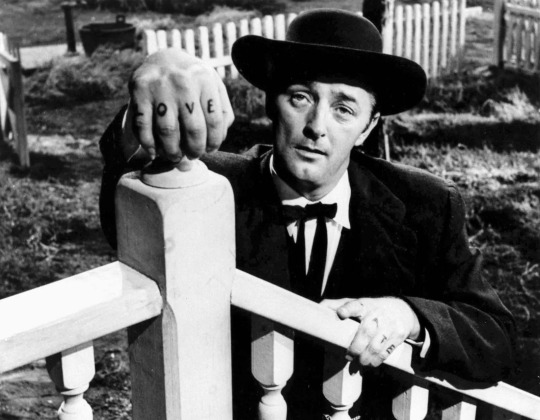
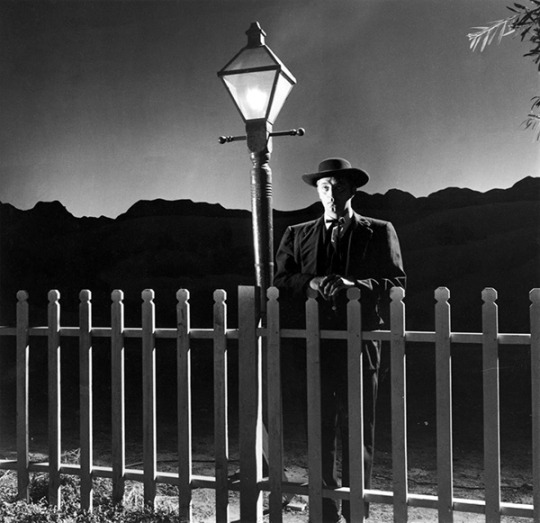
There’s so many weird horror elements in the show. Which is interesting because in this picture we see a revised 2nd edition of The Exorcist! So how farfetched is it to see those elements on the show. Especially this season!

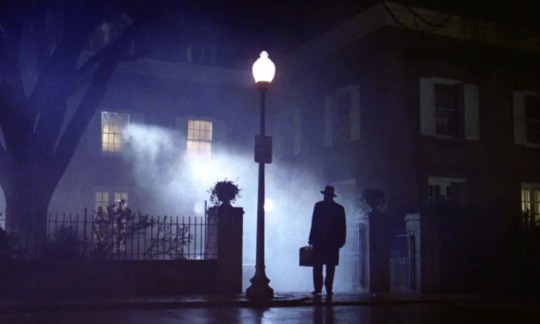
I mentioned before in my post, “Fourth Wall (being broken)” that the Save It For Later song could be about Carmy being lost and it became a reflection to the season. I can’t help but wonder if Save It For Later could have multiple meanings for each character.
@happylikeasadsong broke down some lyrics of the song and explains what it could do with Sydney’s decision.
Lionel Boyce
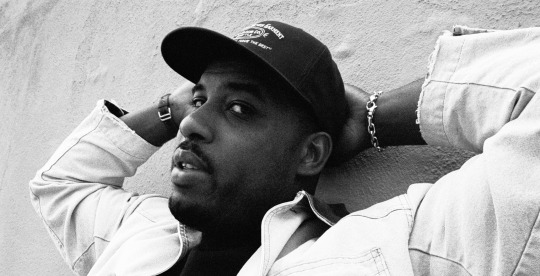
Lionel Boyce said Sèrgio Mendes, “Ides Of March.” for his character Marcus’ before realizing that’s probably not the name of the song. It was actually “Waters of March”
Sèrgio Mendes is most known for his song, Mas Que Nada, which translates to whatever and anyway. In this article I read, they call him a bossa nova king and Mendes explains how life is about magical encounters.
This is probably a funny coincidence but I actually know a song named Soul Bossa Nova by Quincy Jones. It was playing on a playlist that’s about songs you’d hear during magic shows. (x) (x) (x)
Although, Ides of March wasn’t the name of the song and I write metas for The Bear (AKA I’m insane), I did research on both to see what I can find!
Ides of March, day in the ancient Roman calendar that falls on March 15 and is associated with misfortune and doom. It became renowned as the date on which Roman dictator Julius Caesar was assassinated in 44 bce and was further immortalized in the tragedy Julius Caesar by English dramatist William Shakespeare.
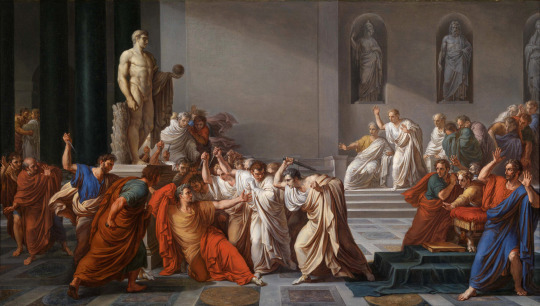
On the topic of William Shakespeare, @currymanganese has a post on The Bear being a super deconstructed Shakespearean pastoral comedy.
It was then corrected to Waters of March. I tried to find the meaning for that particular song by Sérgio Mendes but it all lead to “Water Of March” by Antônio Carlos Jobim.
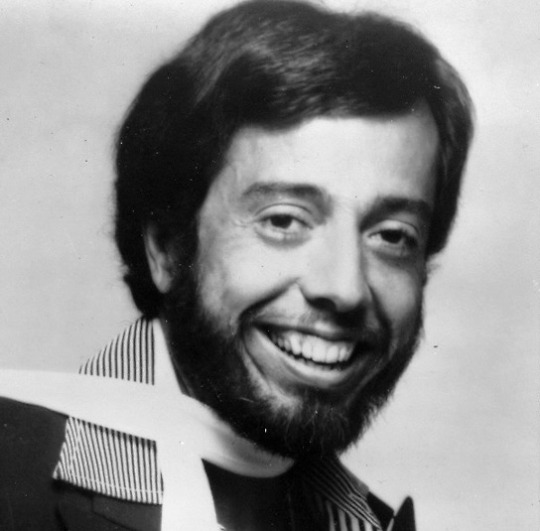
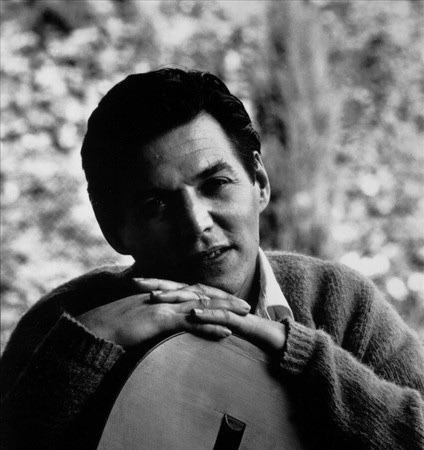
The inspiration for "Águas de março" came from Rio de Janeiro's rainiest month. March is typically marked by sudden storms with heavy rains and strong winds that cause flooding in many places around the city. The lyrics and the music have a constant downward progression much like the water torrent from those rains flowing in the gutters, which typically would carry sticks, stones, bits of glass, and almost everything and anything. Antonio Carlos Jobim wrote the song during a visit to his family rancho, in the interior of Rio de Janeiro state amid a steady rainstorm which had turned the roads and landscape to mud.
sticks and stones may break my bones, (but words can never hurt me) - said in order to show that people cannot be hurt by unpleasant things that are said to them (x)
When it comes to mud, I was immediately reminded of @whenmemorydies’s post on Claire being clear [as] mud. (Which I’ll go a bit more into depth in another post). I’m also fairly certain @ago0112 talked about it as well!
I talked about the topic of glass in my previous meta, The Glass Table & The Glass Fish Tank, where I found parallels to Claire and Donna. Those comparisons got a little confirmed in the script of (2.02).
I did some research on the scripts about Claire on (2.02) as well.

In the post, there was a bit of a deep dive on the potential meaning of glass/shattered glass and here’s one of them I found a connection to.
Connection between the fragility of glass and the human condition: Glass can be tough, but it becomes fragile when it faces too much pressure. Similarly, people can be strong, but life's challenges can make us feel a bit delicate. The broken glass helps us see that we all have both strength and vulnerability inside us, teaching us about the balance between being tough and sensitive in our own lives.
When it talked about how broken glass helps us see that we all have both strength and vulnerability inside us, teaching us about the balance between being tough and sensitive in our own lives, I was reminded of this particular thebearfx’s post:

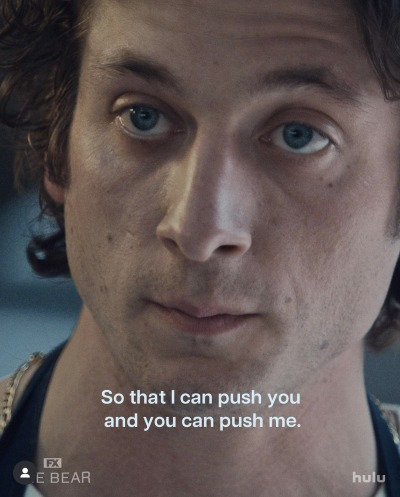

After that, I recalled dialogue that I wrote about in my post on Richie being a fox and a caterpillar. In this scene, Natalie and Richie talk about the soul of the dining room in (3x07).


Richie: [scoffs] “Dining room sounds like shit.” Natalie: “Like, the acoustics?” Richie: “No. It’s like, the soul, you know? It’s like--Service sounds like total chaos.” Natalie: “Every day can’t be perfect.” Richie: “Every day is like the Super Bowl. I could use a lightning bolt.” Natalie: “Can’t control the weather.”
In Waters of March, there’s a reference to a fox in a brush.
The oak when it blooms A fox in the brush A knot in the wood The song of a thrush (x)
What’s so fascinating about this particular rabbit hole is about what it all potentially means for Marcus as a character.
The song is about spring in Brazil as an allegory for life: how it continues on despite our best efforts to control it. It reminds us how with the ugly, comes the beautiful. (x)
The ugliness could be about death while the beauty of it is what the love he has for his mother could inspire for Marcus.
The plan of the house, the body in bed, the car that got stuck, it’s the mud, it’s the mud. a float, a drift, a flight, a wing, a hawk, a quail, the promise of spring.




He had become frustrated with the difficulties the rain was causing for the construction of a new boundary wall along his property line. The skies rained from above while chaos reigned below, as plainly stated in the lyrics: “It’s the mud, it’s the mud…” With plenty of time to contemplate the situation, Jobim created a modern parable for daily life. (x)
I’ll certainly talk about all of this in a separate post (whenever that will be) but there’s so many small details that evolve into a beautiful narrative.
The Coca-Cola Jingle
youtube
Coca-Cola tapped Antonio Carlos Jobim for the rights to his ‘Águas de Março’, giving new lyrics to ‘The Waters of March’ to make the jingle a worldwide sensation. Jobim even became a celebrity spokesman for Coke in a relationship that lasted for several years. (x)
Coca Cola is one of the most popular soft drinks in the world. In doing my research, I found an article talking about how design elements of the soft drink’s logo clearly portray the idea of energy, fun, and good times.
The recent 2021 hug version logo of the brand was termed as “magical” and “genius” by designers. It ended up being introduced with a new tagline as “real magic.” Apparently, it’s considered magical because you can imagine the bottle even when it is not there.
There’s even a well-known story about the white and red logo being inspired by the brand’s first advertisement that featured Santa Claus wearing his red and white suit with a bottle in his hands. (x)
@vacationship made an analysis on the green and red sauce and the potential importance of its symbolism.




Sydney and Claire have an interesting parallel with coke. I actually found that little connection earlier but didn’t know it had any relevance to this until now.


(Sydney pouring/drinking coke after the scene of the group being at Marcus’ mother’s funeral isn’t a coincidence.)
Matty Matheson
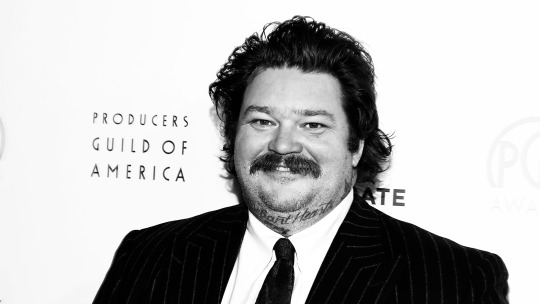
Matty Matheson chose Hakuna Matata for his character Neil Fak. The Bear’s instagram account also talked about how he is a master mocktail maker.
Hakuna matata roughly translates to “there are no troubles” in Swahili. The phrase was popularized in English by the 1994 Disney movie The Lion King, where it's translated as “no worries.” It has a connotation of not worrying about things outside a person's control. The movie popularized the phrase internationally, making it a cultural staple and synonymous with Disney's family-friendly brand.

'Hakuna matata' is Swahili for 'no worries'. As such, it is the perfect catchphrase for Timon and Pumbaa, as it perfectly reflects their relaxed, devil-may-care attitude to life. (x)
@outmakingmoonshine has discussed the possibility that the Faks are the inner voice/imaginary friends for the protagonist (Carmy).
Are they suggesting Pumbaa, Timon, and Simba are Neil Fak, Ted Fak, and Carmy?
The Lion King was released on June 15, 1994, receiving critical acclaim for its music, story, themes, and animation. With an initial worldwide gross of $763 million, it finished its theatrical run as the highest-grossing film of 1994 and the second-highest-grossing film of all time, behind Jurassic Park (1993).
Timon: Hey, where you going? Simba: Nowhere. Timon: Gee. He looks blue. Pumbaa: I'd say brownish-gold. Timon: No, no, no, no. I mean he's depressed. Pumbaa: Oh. Pumbaa: Kid, what's eatin' ya? Simba: Who cares? I can't go back. Timon: Ahh. You're an outcast! That's great; so are we! Pumbaa: What cha do, kid? Simba: Something terrible. But I don't wanna talk about it. Timon: Good. We don't wanna hear about it. Pumbaa: Come on Timon. Anything we can do? Simba: Not unless you can change the past.
Simba: Hakuna matata? Pumbaa: Yeah. It’s our motto! Simba: What’s a motto? Timon: Nothin’ what’s a motto with you?! (laughs) Pumbaa: Hakuna matata: These two words will solve all your problems. (x) (x) (x)
Carmy could have a side of him that feels outcasted by the rest of the group (there was also a group chat he had no idea about) so he conjured up another set of outcasts that promote a motto and philosophy to solve all of his problems.
Neil Fak is the naive/childlike aspects of himself that I suspect Carmy got from his childhood with his mother. I can’t help but wonder if the Faks representing Carmy’s inner voice was only applied to the dumpster scene when I found dialogue about how nice it is in the office before Carmy called Sydney nice after checking her out. Does it only apply when they’re all alone together?
As with many characters in The Lion King, Pumbaa's name derives from the East African language Swahili. In Swahili, pumbaa (v.) means "to be foolish, silly, weakminded, careless, negligent."
Richie and Carmy calls Neil Fak a bitch in (3x02)
Neil Fak: “Nat, the vibe’s weird.”
Carmy: “You’re such a fucking bitch.”
Richie: “You’re such a bitch.”
Natalie: “I know, sweetheart. Don’t be scared.”
Most of these could probably best describe Neil Fak (and even Carmy perhaps) but I wonder about the negligence of his character. Is this about the lack of real tools of his? Another detail that I’m not sure connects here is that Neil Fak mentioned being afraid of boxes to Ted Fak.
Warthogs regularly come into contact with villages and people. When this happens, they usually cause havoc, scampering through a garden or village and making a mess of everything. There is one Pumbaa adjective that is correct. They can be lazy. Rather than digging their own burrows, they will often just use the burrowed home of other animals. (x)
I remember this dialogue vividly, but there was a scene where the Faks asked Donna if they could stay over her house during Christmas.
Neil Fak: “Do you think that we can sleepover—” Donna: “There’s no sleepovers at Christmas. What the fuck?” Neil Fak: “No, we can sleepover.” Donna: “No, you can’t sleepover on Christmas. No. Mm-mmm.” Neil Fak: “No? No. Big Neil got us skateboards.” Donna: “You know what? Shut up. Michael!” Neil Fak: “Michael hid ‘em.” Donna: “Hey, Michael. Get in here. Mike? The Faks are asking me stupid things—”
(The fact that there’s a Hakuna Matata reference after Hulu is bought by Disney is also not lost on me.)
Timon is a historical Greek name, taken to mean "he who respects." Timon's name may derive from Shakespeare's tragedy Timon of Athens, another Shakespeare reference in a film which derives its plot from Hamlet. The tragedy is based in the history of the real Timon of Athens, a famous misanthrope during the era of the Peloponnesian War, who refused life in Athens to live isolated. Another explanation is that he is named after the Greek philosopher Timon, a disciple of Pyrrho, the founder of the school of skepticism. (x) (x) (x)
I happened to stumble upon another Shakespeare reference. If Timon is meant to be Ted Fak then this is going to be a bit ironic because of what Ted Fak’s theme song is!
Ricky Staffieri
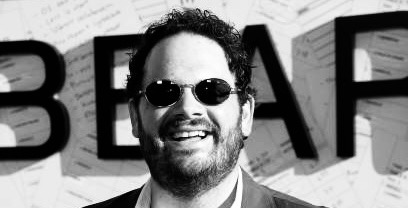
Ricky Staffieri chose Back Then by Mike Jones for the theme song of his character, Ted Fak. Ironically, this song is vulgar in nature with calling woman “hoes” and all.
In the same meta I mentioned earlier, @outmakingmoonshine talked about Ted being sex driven and maybe representative of Carmy’s primal mind.
We also have @thoughtfulchaos773 having a post on the inappropriate double entendre jokes on the show.

I never really listened to the lyrics until about two months ago, but now that I have, they’re pretty amazing. On the surface, it’s a vulgar song about “hoes,” but on a deeper, more philosophical level, it’s an anthem about self-confidence. The overall message in Jones’ song is that the ladies in his life were never really gave him the time of day until he started to make it big. When you really listen to the message of the words – and not necessarily the words themselves – a lot of it is just him spewing the harsh truth. I think it speaks to all of the ugly ducklings out there, or the really shy people who never put themselves out there until they found themselves later on in life. That cute girl in middle school or high school who is now a bombshell? Yeah, she remembers how you treated her. (x)
Claire always told Carmy about their past history when they were young but Carmy seemed to have no recollection of it.
After reading this analysis on its philosophical meaning, I couldn’t help but wonder what it all meant pertaining to Ted Fak. Do we really know anything about Ted Fak’s history in high school besides Carmy? I just got a sudden wave of theories that this is referring to Carmy.
For Ted Fak, maybe this is about being treated poorly in high school. Now, he ended up working for a popular food establishment with very sudden attention from woman which had never happened before.
For Carmy, Ted Fak could be the more anxiety/primitive ridden version of him.
The reason I talk about the anxiety aspect is because some people have the personal experience of saying things they don’t mean when they have anxiety. Ted Fak could be representing the brutal ‘truths’ that Carmy could or don’t really mean.
Anxiety activates people’s fight or flight instinct When someone has an anxiety disorder, they'll often feel intense fear towards possible threats and dangers. For someone with a social anxiety disorder, this could be crowds or social events, whereas for someone with generalised anxiety disorder (GAD), their fear could be focused on a broad range of potential scenarios, such as losing their job, damaging their friendships or getting into accidents. These thoughts cause people to experience symptoms of anxiety such as an increased heartbeat, shortness of breath and nausea. This is because thinking about the possible dangers activates their fight or flight instinct. Irritability is a symptom of anxiety When a person is experiencing anxiety, they'll often be more irritable than usual. This is a common symptom of many types of anxiety disorder. (x)
The increased heartbeat caught my attention because Claire noticed his heart was beating fast in a scene before it cuts to Carmy looking at a clock in (3x04).
The other part of the song I absolutely love is: “I ain’t got no time to call her. I’ma stall her like she stalled me, now she trying to call me; (girl) I’ma dog your whole ass like you dogged me.”
I can’t lie. I laughed so hard when I saw this lyric. Like damn, I wonder who exactly this could refer to here? It could be about Kelly but I’ll have to do more digging to figure that out.
I can’t speak for everyone in the world, but I know that I have an elephant-like memory when it comes to people how people treat me – whether it was in middle school, high school, college, or recently. I’m a firm believer in that unless someone gives you a reason to treat them like dirt, you shouldn’t. I know that I don’t pay any mind to people – not just girls – who treated me like crap and are now trying to make like everything is OK. Respect is earned, not given with me; I believe people can change (to a degree), but it will take time for someone to earn my trust and respect, if violated.
This is when we get the depiction of respect and how it’s earned, not given. Does Carmy respect Claire and vise versa?
I didn’t really get the vibe that Claire was a mean person or a bully with the way she spoke about her and Carmy’s history. But what if she scrubbed the ugly parts of it?
It’s making me ponder whether Carmy felt bitter that Claire suddenly had this interest in him because he’s well known as a chef now. It’s even more bizarre because they were both in New York. Mikey told her about Carmy’s chef adventures by the time of Christmas. Why didn’t Claire reach out to him then? Did it really take Mikey passing away for her to make a move?
There was discussion between @devisrina, @thoughtfulchaos773, and I about this. This is when I had the thought that Claire might’ve started talking to Carmy to humor herself and her friends because Carmy was the loner in high school. It was after the scripts came out and we discovered Claire was originally supposed to be blonde like Carmy’s mother. There’s so many questions on whether Claire and Carmy really had a crush on each other.
The Phone Number
I’m at the early stages of what I hope will be a very successful sports reporting career, so some people have reached out for various reasons (advice, recommendation, etc.). I’m happy to try and help the people who treated me well, but I almost want to laugh at the people who treated me like dirt and are now asking for a favor, however small. Mike Jones may use more colorful language than I would have had I wrote this song, but its underlying message is essentially the Golden Rule laced with profanity: Treat others the way you would want to be treated.
Something that I thought was interesting, was that Mike Jones rapped his phone number into the song. The most obvious parallel to this is that Carmy (purposely?) gave her the wrong number when they reunited by the grocery store fridges.
They see that I'm a star, now they wanna sit in my car Now they wanna count my cheese, smoke my weed and sip my barre now They used to love to me diss me, now they rush to hug and kiss me now They tellin' all they friends when I leave how they miss me now (281) 000-000 Hit Mike Jones up on the low cause Mike Jones about to blow Befo' the ice was in my grill, before I got my major deal These hoes wouldn't give a damn if I was ill, geah (x)
Apparently, ice on grills is a thing in the cooking industry. Graham Elliott revealed in an interview that his trick for making better burgers is pressing an ice cube into the middle of the patty before grilling.
“And if you're worried about the ice cubes making your burgers cold or wet — don't! The ice melts pretty quickly so no one will even know they were there.” <- This just felt reminiscent to my theory on Claire being an illusion. (x) (x)
Chef Graham Elliot Remembers Charlie Trotter “Famed Chicago chef Charlie Trotter died on Tuesday at age 54. Graham Elliot joined Charlie Trotter’s at age 21, and worked in his kitchens for three years.”
It seems important to note that Graham Elliot had three years of experience with Charlie Trotter.
Chef, mentor, trailblazer, philosopher, artist, teacher, leader. These are the words that immediately come to mind when I think of Charlie Trotter, or CHT, as he was referred to by the team. Rarely does one encounter an individual that can both inspire and frighten you with his (almost perverse) dedication to excellence and perfection. I learned his philosophic approach to cooking, and that everything was of equal importance. That you had to be your own toughest critic. That we weren’t in the “food industry” but in the “make it happen” business. To this very day, I try to foster the same ideals in my team: That the food you put on the plate, the way you keep your knives sharp, the way you wipe down your station—all of those represent who you are as a person. (x)
@moodyeucalyptus recently tagged me in their post discussing the documentary about Charlie Trotter and the similarities with Carmy’s asshole boss. I don’t think it’s a coincidence I found this connection.
We know that Carmy was buying very expensive food ingredients/supplies and helped Claire’s mother with moving boxes. (Not to mention, he was literally moving boxes with Claire like he was doing with the Faks.)
As @outmakingmoonshine pointed out, Carmy had a problem with Richie calling Sydney sweetheart in the very first episode but didn’t really seem to care about Claire being called a piece of ass by Ted Fak. The only thing he did was clarify what he meant and that was it.
Is it possible he didn’t really flinch because these were his thoughts about her for a while and has been trying to navigate through his true feelings for her?
What really caught my eye was the smoke my weed part. Funnily enough, in season three, we see Claire and Carmy share a cigarette.
Claire: “Can you just not make this weird? Like, I need a favor. My cousin bailed on me.”
Did he feel a certain way after doing that favor for her? Which would explain why he asked her for a favor too and struggled to explain why he gave her a fake number. Carmy mentioned how he liked her alot at the party. Did he think it wasn’t anything more than what it was, exchanging favors?
Claire: “You know he, uh he told me you guys are really close and he’s your best friend.” Carmy: “Fak said that?” Claire: “Mhm.” Carmy: “No no no. Fak’s not my best friend.” Claire: “Really?” Carmy: “No no he is. He’s probably my best friend.” Claire: “That’s interesting. To sit with. For you.”
I thought Claire saying this was very strange because I couldn’t grasp whether she was saying a lighthearted joke or making fun of him.
Considering the new information thebearfx had given, did Carmy sense that? Especially when Jones talked about how they wouldn’t care if he was ill. It felt so reminiscent to Claire leaving Carmy in the fridge after he said things that were more concerning rather than hurtful.
Maybe Carmy didn’t realize the type of relationship it was until it was too late.
Thank you so much for reading!! This seems so convoluted. I made a good majority of this on August 7th. Feel free to call me insane for this rabbit hole (I’m well aware of how insane I look). There’s alot of information that I just discovered recently besides this meta but I don’t even know how to put it in the proper words. So, bear with me for a bit lmao. Fair warning, the topic of animals, gardens, plants, water, glass, and cigarettes might come back in a good majority of my metas for now. Hopefully I’ll be able to properly explain why later lol.
(c) brokenwinebox
#the magic trick#the bear is a magic show#i have alot to unpack for this one#feel free to give me your interpretations of it!#i’ll probably go more in depth with most of this in separate posts soon hopefully#jeremy allen white#lionel boyce#matty matheson#ricky staffieri#sydcarmy meta#the bear meta#carmy berzatto#anti claire bear#anti claire dunlap#marcus brooks#neil fak#ted fak#the bear fx#the bear
57 notes
·
View notes
Text
Provenance mysteries: Mr. William Shakespear’s comedies, histories, and tragedies

This edition’s provenance mystery features Mr. William Shakespear's comedies, histories, and tragedies, published in London in 1685. This edition of Shakespeare’s collected works is otherwise (better?) known as the ‘fourth folio’, and as can be seen here, includes the famous portrait of Shakespeare by Martin Droeshout. While the portrait that accompanied the ‘first folio’ (1623) appeared on the title page, in this edition it was included as a frontispiece.
The Library did not acquire this folio until the mid-nineteenth century. It first came into the collection between 1845 and 1862. The first listing of it in one of the Library’s catalogues is in 1862 (from a manuscript version of this 1863 catalogue: https://archive.org/details/cu31924021690510/page/550/mode/2up). Although the 1862/3 catalogue lists a first folio as being in the collection, this is in fact a reference to a nineteenth century facsimile of the first folio. We do not know how the Library acquired the fourth folio (whether through purchase or donation).
For some reason, when the book was rebound, or repaired in the twentieth century, one of the front end leaves was turned upside down, and glued to the title page. We know this because there is a price and code (probably a bookseller’s) pencilled onto it, in what was originally the upper right hand corner: ‘£5.5’. The code is difficult to decipher, but it is not a previous Library shelfmark. If the Library acquired the book through purchase, this could be the price it paid at the time for the book.

Another intriguing discovery was the presence of small pieces of cut-out paper, possibly wallpaper, found in the gutter of the book. One theory is that someone was cutting shapes out, perhaps using the book as a stand, and these pieces of paper fell into the gutter.

But the provenance mystery we are querying concerns the signature on the front end-leaf, which was only recently discovered. The book was in terrible condition, and has recently undergone restoration. As part of that process, the conservation studio realised that one of the front end-leaves had been glued down onto the frontispiece portrait. They were able to separate out the two leaves, revealing an inscription: ‘Captain Bateman’ and ‘Capt Bateman his book’ followed by a date: either 1704, or 1794. We are fairly certain that the date is 1704, however, judging by the second photo of the inscription.


Without any further evidence than this, it is very difficult to determine who this Captain Bateman is. The date of 1704, if it is correct, could reveal an owner/reader who was interested in reading Shakespeare’s plays a little over 100 years after the author’s death.
As ever, if you have further comments please get in touch: [email protected].
Renae Satterley
Librarian
November 2024
#library#law library#mtlibrary#inns of court#history#rare books#libraries#books & libraries#london#rarebook#shakespeare#william shakespeare#shakespeare plays#shakespeare's works
15 notes
·
View notes
Text
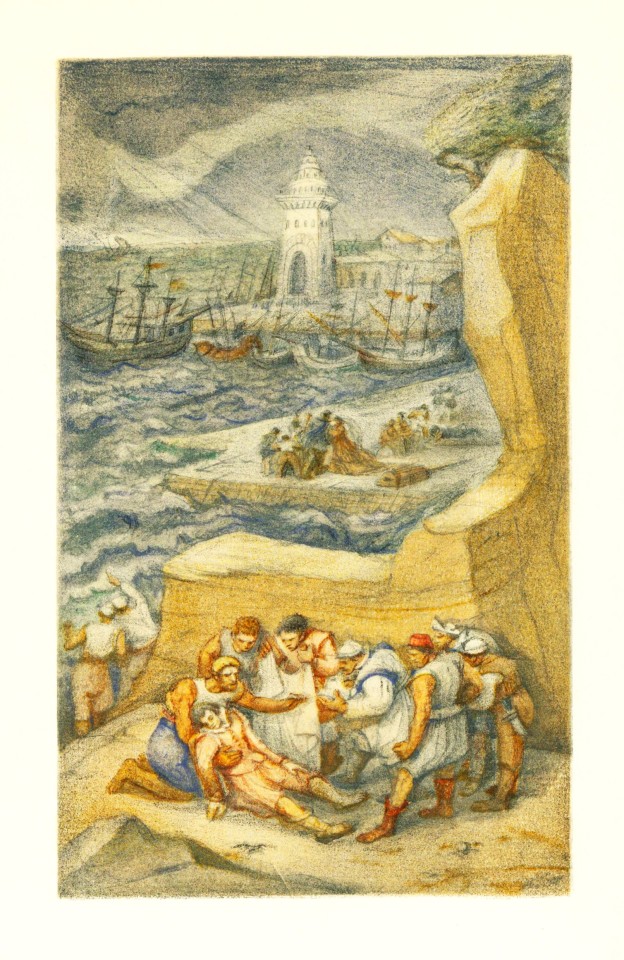


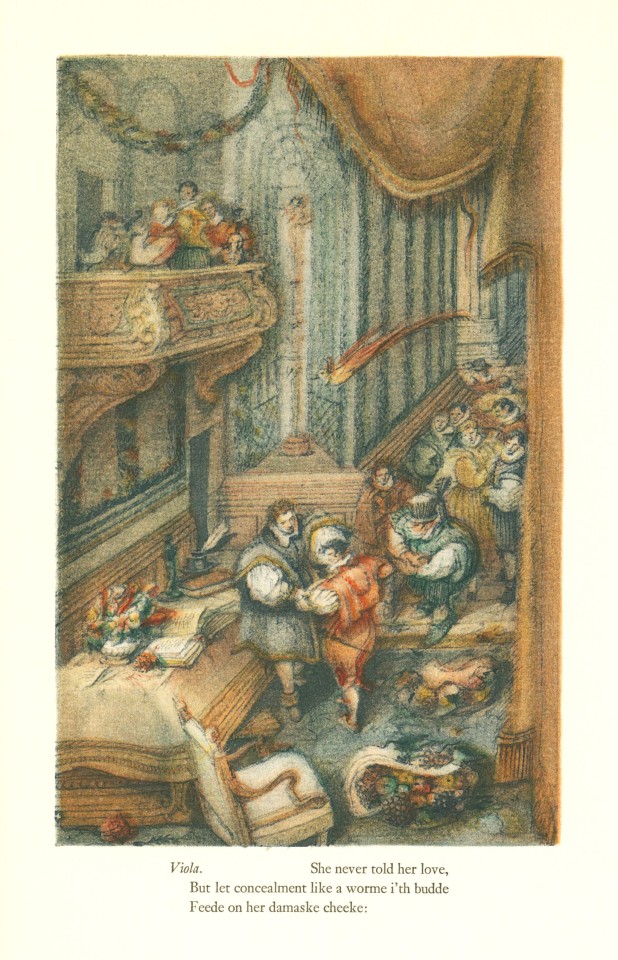
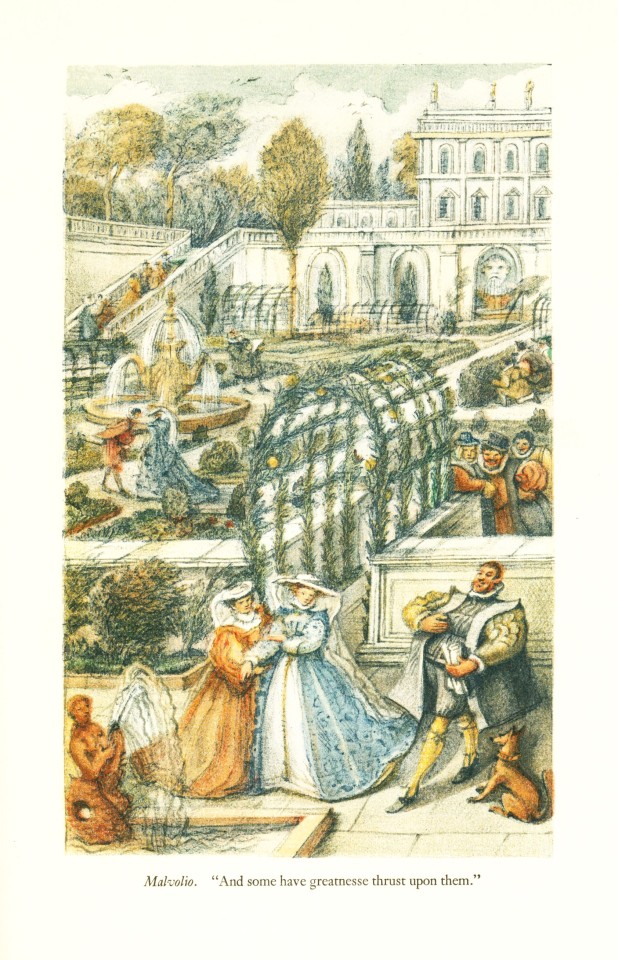
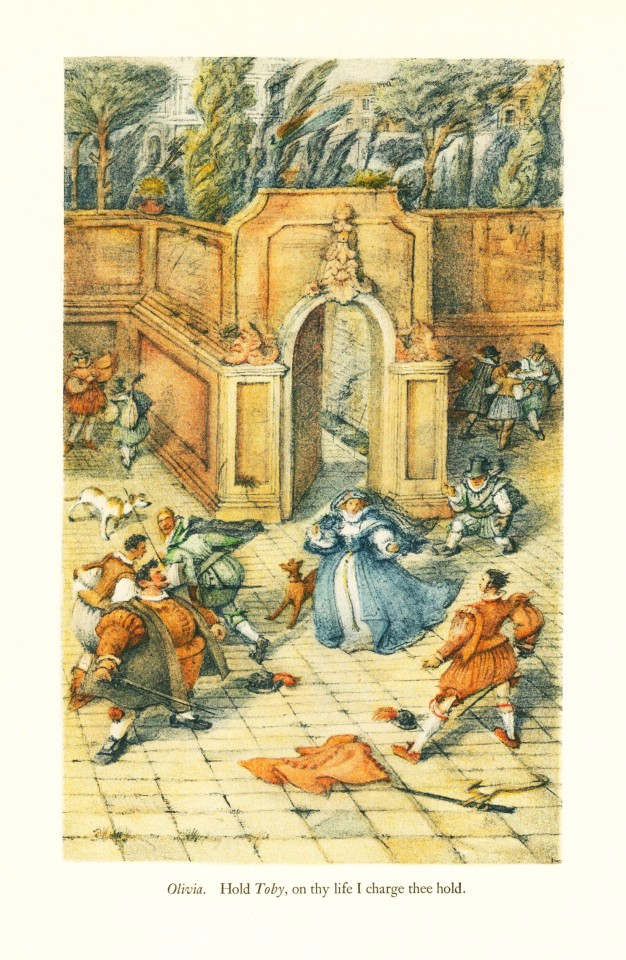
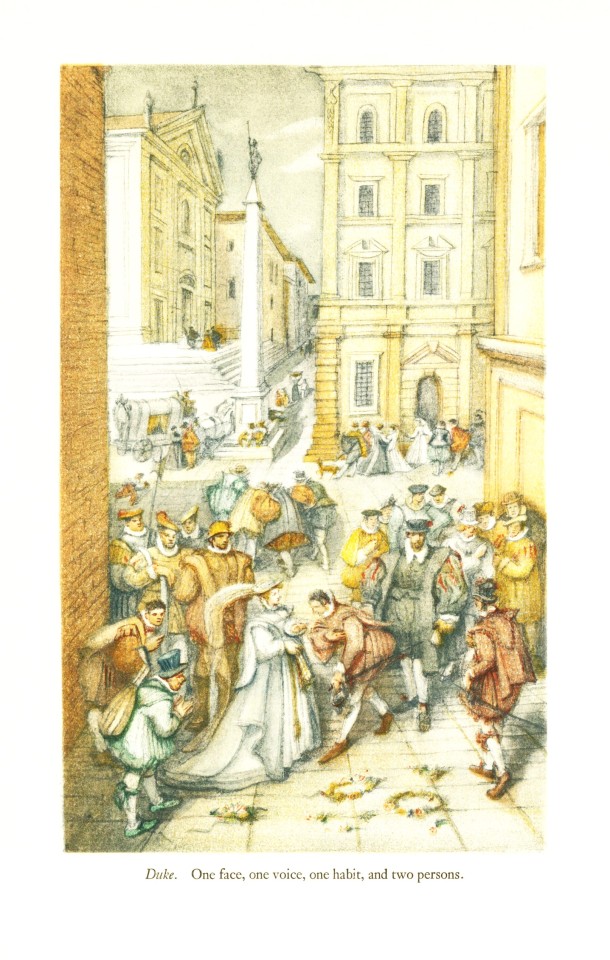
Shakespeare Weekend
This weekend we enjoy Shakespeare’s romantic comedy, Twelfth Night the thirty-fifth volume of the thirty-seven volume The Comedies Histories & Tragedies of William Shakespeare, published by the Limited Editions Club (LEC) from 1939-1940. The original full title of the play is Twelfth Night, Or What You Will, and it was written between 1600 and 1601 with its first performance noted in 1602 at the Middle Temple in London. Twelfth Night was not published until 1623 with its inclusion in the First Folio.
Italian artist Francesco Carnevali (1892-1987) illustrated the LEC’s edition with colorfully detailed watercolors. Carnevali was a professor at the Academy of the Book in Urbino, Italy and was serendipitously already working on illustrations for Twelfth Night when the LEC wrote to him asking if he’d like to collaborate on their Shakespeare publications. The resulting watercolors are unique in their angled perspective providing readers with an elaborate view of the action as if they were sitting in balcony theater seats and transporting them into the ambiance of a seaside town.
Laid in with our holding is a program from the Spring 1941 performance of Twelfth Night performed at Milwaukee’s historic Pabst Theatre. The performance starred Helen Hayes as Viola, Maurice Evans as Malvolio, and was presented by The Society of Allied Arts.

The volume was printed in an edition of 1950 copies at the Press of A. Colish. Each of the LEC volumes of Shakespeare’s works are illustrated by a different artist, but the unifying factor is that all volumes were designed by famed book and type designer Bruce Rogers and edited by the British theatre professional and Shakespeare specialist Herbert Farjeon. Our copy is number 1113, the number for long-standing LEC member Austin Fredric Lutter of Waukesha, Wisconsin.
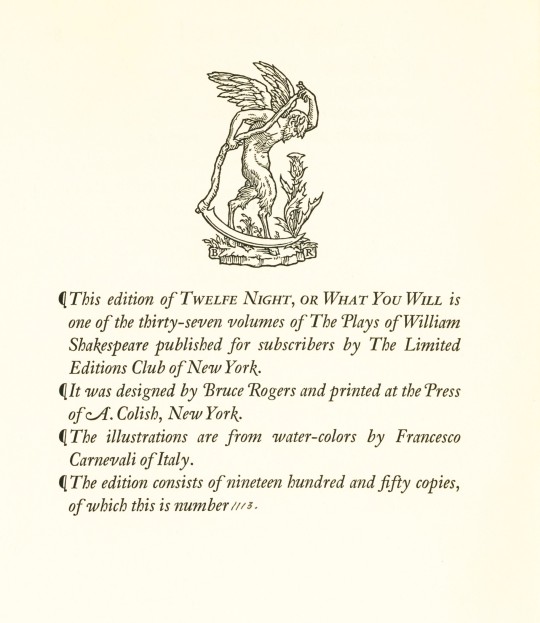
View more Limited Edition Club posts.
View more Shakespeare Weekend posts.
-Jenna, Special Collections Graduate Intern
#shakespeare weekend#shakespeare#william shakespeare#twelfth night#francesco carnevali#press of a. colish#bruce rogers#herbert farjeon#watercolor#illustration#helen hayes#maurice evans
140 notes
·
View notes
Text
The Philosophy of Shakespeare
The philosophy of Shakespeare refers to the exploration of philosophical themes, questions, and ideas within the works of William Shakespeare. While Shakespeare was not a philosopher in the traditional sense, his plays and sonnets are rich with philosophical insights that address issues related to human nature, ethics, politics, love, fate, identity, and the human condition. Scholars and readers alike have long examined how Shakespeare’s writings engage with philosophical concepts and how these concepts are dramatized through his characters and narratives.
Key Themes in the Philosophy of Shakespeare:
Human Nature and the Human Condition:
Complexity of the Human Psyche: Shakespeare's characters are known for their psychological depth and complexity. His works explore the multifaceted nature of human beings, including the tensions between reason and emotion, ambition and morality, and appearance and reality.
The Tragic Flaw (Hamartia): Many of Shakespeare’s tragedies revolve around the concept of a tragic flaw, a characteristic that leads to the downfall of the protagonist. This theme raises philosophical questions about free will, fate, and the moral consequences of human actions.
Ethics and Morality:
Good and Evil: Shakespeare’s works frequently grapple with the nature of good and evil, exploring the moral ambiguities of his characters' actions. Plays like Macbeth and Othello delve into the corrupting influence of power, jealousy, and ambition.
Justice and Revenge: The tension between justice and revenge is a recurring theme, particularly in plays like Hamlet and The Merchant of Venice. These works examine the ethics of retribution, the consequences of revenge, and the pursuit of justice.
Fate and Free Will:
Destiny and Choice: Shakespeare often explores the tension between fate and free will, questioning the extent to which characters are in control of their own destinies. Romeo and Juliet and Macbeth are notable examples where the characters' actions seem predestined, yet their choices play a crucial role in their outcomes.
Prophecy and Foreknowledge: The use of prophecy, as seen in Macbeth and Julius Caesar, raises philosophical questions about whether knowledge of the future alters the course of events or if it leads inevitably to the fulfillment of that future.
Identity and Self-Knowledge:
The Fluidity of Identity: In plays like Twelfth Night and As You Like It, Shakespeare explores the fluidity of identity, particularly through themes of disguise and mistaken identity. These themes challenge the fixed nature of identity and raise questions about self-knowledge and authenticity.
Self-Deception: Characters in Shakespeare’s plays often engage in self-deception, either out of pride, fear, or desire. This theme is particularly prominent in King Lear and Hamlet, where characters’ inability to see themselves or their situations clearly leads to tragedy.
Politics and Power:
The Nature of Authority: Shakespeare’s historical plays and tragedies frequently address the nature of political power and authority. Richard III, Henry V, and Julius Caesar explore the ethics of leadership, the legitimacy of rulership, and the corrupting influence of power.
The Body Politic: The metaphor of the body politic, where the state is likened to a human body, is a recurring theme. In plays like Coriolanus and Measure for Measure, Shakespeare examines the health of the state and the moral responsibilities of rulers.
Love and Relationships:
Romantic Love: Shakespeare’s comedies and tragedies offer deep reflections on the nature of love, its joys, and its perils. Plays like Romeo and Juliet and Much Ado About Nothing explore the idealization of romantic love, the pain of unrequited love, and the complexities of human relationships.
Friendship and Loyalty: Beyond romantic love, Shakespeare also delves into themes of friendship and loyalty, as seen in The Merchant of Venice and Julius Caesar. These relationships often raise questions about the conflicts between personal loyalty and public duty.
Appearance vs. Reality:
Illusion and Truth: Many of Shakespeare’s plays involve themes of appearance versus reality, where characters and situations are not what they seem. Hamlet and Othello are prime examples of how deception and the search for truth drive the plot and philosophical inquiry.
Theatricality of Life: Shakespeare often blurs the line between reality and performance, as seen in As You Like It's famous "All the world's a stage" monologue. This raises philosophical questions about the nature of reality, the roles people play in life, and the construction of identity.
Mortality and the Meaning of Life:
Death and the Afterlife: Shakespeare’s works are deeply concerned with mortality, the fear of death, and the unknown aspects of the afterlife. Hamlet's "To be, or not to be" soliloquy is one of the most famous meditations on existence and the fear of what comes after death.
The Transience of Life: The fleeting nature of life and the inevitability of death are recurrent themes, particularly in Shakespeare’s sonnets and tragedies. These reflections often lead to a broader contemplation of the meaning and value of life.
Philosophical Skepticism:
Doubt and Certainty: Shakespeare’s characters often grapple with doubt and uncertainty, questioning their beliefs, their perceptions, and the world around them. This skepticism is evident in Hamlet's introspection and in King Lear's descent into madness.
Relativism and Perspective: Shakespeare frequently presents multiple perspectives within his plays, allowing for a relativistic view of truth and morality. This multiplicity of viewpoints invites the audience to question the nature of truth and the reliability of perception.
The philosophy of Shakespeare is not a unified doctrine but rather a rich and varied exploration of fundamental human concerns. Through his characters and narratives, Shakespeare engages with philosophical questions about human nature, morality, power, love, identity, and existence. His works continue to inspire philosophical inquiry, offering insights that are as relevant today as they were in the Elizabethan era.
#philosophy#epistemology#knowledge#learning#education#chatgpt#ethics#psychology#Shakespeare#Philosophy of Literature#Human Nature#Morality#Ethics#Fate and Free Will#Identity and Self-Knowledge#Politics and Power#Love and Relationships#Appearance vs. Reality#Mortality#Philosophical Skepticism#Tragic Flaw#Shakespearean Tragedy#Renaissance Philosophy
11 notes
·
View notes
Text
William Shakespeare, often regarded as one of the greatest playwrights in history, has had a profound and enduring influence on modern-day playwriting. His impact transcends time and cultural boundaries, shaping the very foundations of dramatic storytelling. Here's an in-depth analysis of Shakespeare's influence on contemporary playwriting:
1. **Language and Expression:**
- Shakespeare's mastery of language, poetic devices, and inventive wordplay set a high standard. Modern playwrights often draw inspiration from his eloquence, exploring the nuances of dialogue, metaphor, and linguistic richness in their own works.
2. **Universal Themes:**
- Shakespeare's exploration of timeless and universal themes such as love, jealousy, power, betrayal, and the human condition resonates across centuries. Contemporary playwrights continue to delve into these themes, recognizing their enduring relevance to human experiences.
3. **Character Complexity:**
- Shakespeare's characters are renowned for their depth and complexity. Modern playwrights often create multifaceted characters with conflicting motivations and inner struggles, following Shakespeare's lead in presenting individuals with a full range of emotions and flaws.
4. **Narrative Structure:**
- Shakespeare's innovative narrative structures, including the use of subplots, soliloquies, and intricate character relationships, have left an indelible mark. Contemporary playwrights experiment with these structural elements to craft engaging and layered stories.
5. **Exploration of Morality and Ethics:**
- Many of Shakespeare's plays grapple with moral dilemmas and ethical considerations. Modern playwrights, influenced by this exploration, continue to use drama as a medium to question societal norms, challenge ethical boundaries, and provoke thought on moral complexities.
6. **Adaptations and Reimaginings:**
- Countless adaptations and reimaginings of Shakespeare's works exist in modern theater. Playwrights often draw inspiration from his plots, characters, and themes, adapting them to contemporary settings and cultural contexts. This continual reinterpretation keeps Shakespearean influence alive.
7. **Genre Blending:**
- Shakespeare was known for blending genres, seamlessly integrating tragedy, comedy, romance, and history. Modern playwrights experiment with genre-blending, creating works that defy traditional categorization and incorporate a diverse range of dramatic elements.
8. **Meta-Theatricality:**
- Shakespeare frequently employed meta-theatrical elements, drawing attention to the nature of theater itself. Contemporary playwrights follow suit, incorporating self-awareness, breaking the fourth wall, and exploring the relationship between the audience and the performance.
9. **Cultural References and Allusions:**
- Shakespeare's works are rich with cultural references and allusions. Modern playwrights, recognizing the power of intertextuality, often incorporate references to Shakespearean plays, creating a layered dialogue between past and present.
In summary, Shakespeare's influence on modern-day playwriting is immeasurable. His legacy extends beyond mere imitation, shaping the very essence of dramatic storytelling and providing a timeless foundation upon which contemporary playwrights continue to build, innovate, and express the complexities of the human experience.
2 notes
·
View notes
Text
Things We’ve Yelled About This Episode #3.6
Hamlet, William Shakespeare
The Silmarillion, J. R. R. Tolkien
Hamlet (1996) - Kenneth Branagh
Kenneth Branagh (imdb)
Hamlet (2009) - David Tennant
David Tennant (imdb)
Hamlet (2016) - RSC, Paapa Essiedu
Paapa Essiedu (imdb)
Othello, William Shakespeare
The Lion King (1994)
Withnail and I (1987)
Rosencrantz and Guilderstern Are Dead, Tom Stoppard
Rosencrantz and Guilderstern Are Dead (1990)
Gary Oldman (imdb)
Lewis (2006-2015)
Hamlet (2018) - Andrew Scott (youtube)
Andrew Scott (imdb)
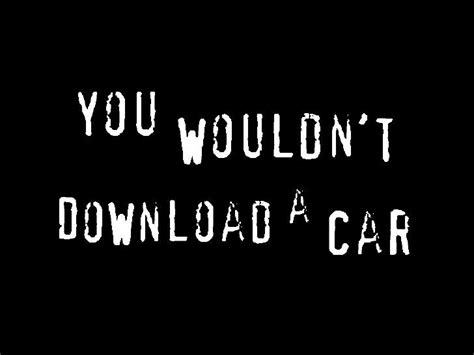
Minecraft
Sparknotes
The Trolley Problem (wiki)
Much Ado About Nothing, William Shakespeare
Much Ado About Nothing (2011) - David Tennant and Catherine Tate
Catherine Tate (imdb)
Illyria (wiki)
Twelfth Night, William Shakespeare
Kronborg castle (wiki)
The Minack Theatre (website)
Harrow the Ninth, Tamsyn Muir
Gesta Danorum, Saxo Grammaticus (wiki)
The Castle of Otranto, Horace Walpole
Cyrano de Bergerac, Edmond Rostand
Peredur (wiki)
Richard III (wiki)
The Princes in the Tower (wiki)
This tumblr post about confession
To Be Or Not To Be, Ryan North
O, that this too too solid flesh would melt Thaw and resolve itself into a dew! Or that the Everlasting had not fix’d His canon ‘gainst self-slaughter! Hamlet, Act I Scene 2
Parks and Rec (2009-2015)
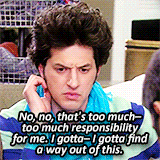
Leonardo Dicaprio (imdb)

But that I am forbid
To tell the secrets of my prison-house,
I could a tale unfold whose lightest word
Would harrow up thy soul, freeze thy young blood,
Make thy two eyes, like stars, start from their spheres,
Thy knotted and combined locks to part
And each particular hair to stand on end,
Like quills upon the fretful porpentine - Hamlet, Act I Scene 5
I have of late, but
wherefore I know not, lost all my mirth - Hamlet, Act II Scene 2
This post
To thine own self be true - Hamlet, Act I Scene 3
Malvolio - Twelfth Night, William Shakespeare
Be not afraid of greatness. Some are born great, some achieve greatness, and others have greatness thrust upon them. - Twelfth Night, Act II Scene 5
The difference between comedy and tragedy is listening to the women - this post
King Lear, William Shakespeare
The Muppets
Statler and Waldorf
Gonzo and Rizzo
Ian McKellen (imdb)
Patrick Stewart (imdb)
Now cracks a noble heart. Good night sweet prince:
And flights of angels sing thee to thy rest! - Hamlet, Act V Scene 2
House of Finwe (wiki)
Metaverse
The Long Way To A Small Angry Planet, Becky Chambers

Would that be fucked up or what? (meme)
Manic pixie dream girl (trope)
Queer Lit, Manchester (website)
The Mandalorian (2019 -)
The Cat Rating
5/10
What Else Are We Reading?
The Silmarillion, J. R. R. Tolkien
Snowcrash, (1992)
Notes From A Crocodile,
Harrow the Ninth, Tamsyn Muir
Nona the Ninth, Tamsyn Muir
What Abigail Did Last Summer, Ben Aaronvitch
The Last of Us (2023 -)
Next Time On Teaching My Cat To Read
The Raven Tower, Ann Leckie
1 note
·
View note
Text


Theatre lesson nr.13 - Dramaturgy and TEAM
During the last lesson, we started by reviewing the material from the previous lesson—what literature is, what literary genres exist, and what examples of comedy we know (A Midsummer Night’s Dream, Much Ado About Nothing, and Zemsta).
Next, we reviewed the content of the play Hamlet by summarizing its plot into 15 sentences (each student had one sentence). Additionally, in 4 minutes, we had to determine what Hamlet is about and what the book tells us.
Hamlet, Act I, Scene 2:
“What kind of man gets up and says, ‘I know the truth! I know the purpose! I have the answers to all the questions!’? So, if I had no doubts, I wouldn’t be myself.”
Hamlet is a tragedy written by William Shakespeare between 1599 and 1602. The protagonist, Hamlet, learns that his father has been murdered by his uncle Claudius, who later marries Hamlet’s mother, Gertrude. Hamlet wants revenge for his father’s death, pretending to be mad in order to test whether his suspicions are true. In the end he discovers the truth, which leads to tragic events—Hamlet, Gertrude, Claudius, Laertes, Ophelia, and Polonius all die, and the kingdom of Denmark is destroyed.
* Hamlet – the protagonist, a character filled with inner contradictions and dilemmas. He seeks to avenge his father’s death and begins to question the meaning of life and death.
* Claudius – the antagonist, Hamlet’s deceased father’s brother. He is determined to take the throne, which motivates him to murder his brother. Desperately, he tries to maintain power by using any means necessary.
The Dramatic Structure
The drama in Hamlet is built through an increasingly growing tension between Hamlet and Claudius. As the protagonist, Hamlet, experiences internal conflict, Claudius is a representation of cruelty and manipulation. We discussed the protagonists and antagonists in different dramas, and got to know more about the use of climax and the TEAM formula (T-tension, E-emotion, A-atmosphere, M-meaning), which we used to analyse different dramas.
What creates the atmosphere in Hamlet?
The action takes place in a castle, which creates an atmosphere of heaviness and mystery. The dark and cold castle walls add intrigue. Hamlet does not feel comfortable in his surroundings, suspecting that everyone is conspiring against him.
At the end of the lesson, Ms. Paulina Gawrońska 🤍 introduced us to a new way of viewing one of the characters in Hamlet - Gertrude. We focused on her actions from her perspective, which was extremely interesting because I had never thought about her behavior from this point of view before.
Gertrude’s Defense:
* After her husband’s death, she loses support and protection.
* She is close to the murderer, Claudius.
* !The only option to save her son is to marry Claudius, as Hamlet is the last obstacle preventing Claudius from taking the throne. Despite this, Hamlet feels betrayed, as he does not understand his mother’s decision!
1 note
·
View note
Text
What Are the Divisions of Poetry?

Poetry is a diverse and multifaceted form of literary expression. It encompasses a range of styles, forms, and structures, each offering unique ways to convey emotions, ideas, and experiences. Understanding the various divisions of poetry is essential for both readers and writers, as it provides insight into the different ways poetry can be crafted and appreciated. This article explores the primary divisions of poetry, including its major forms, structures, and styles, and examines how each contributes to the richness of the poetic tradition.
Major Divisions of Poetry
Narrative Poetry
Narrative poetry tells a story through verse. Unlike other forms of poetry, which may focus on emotion or abstract concepts, narrative poetry emphasizes plot and character development. This division includes several well-known subgenres:
Epic Poetry: Epic poems are lengthy and deal with grand themes, such as heroism, warfare, and the struggles between good and evil. Examples include Homer’s “Iliad” and “Odyssey” and Virgil’s “Aeneid.” These epics often feature heroic figures and explore their adventures and significant achievements.
Ballads: Ballads are shorter narrative poems that typically recount a dramatic or tragic story. They often have a simple, repetitive structure and are meant to be sung or recited. Traditional ballads often focus on folklore, legends, and historical events. Examples include “The Ballad of Robin Hood” and “The Rime of the Ancient Mariner” by Samuel Taylor Coleridge.
Romance: Romance poetry centers on chivalric adventures and themes of love and honor. These poems often involve knights, quests, and magical elements. Medieval romances, such as “Sir Gawain and the Green Knight,” exemplify this form, blending narrative with elements of legend and mythology.
Lyric Poetry
Lyric poetry is characterized by its focus on personal emotions, thoughts, and reflections. Unlike narrative poetry, which tells a story, lyric poetry expresses the poet‘s inner feelings and experiences. The primary forms of lyric poetry include:
Sonnet: The sonnet is a 14-line poem with a specific rhyme scheme and meter, typically iambic pentameter. There are several types of sonnets, including the Shakespearean (or English) sonnet, which follows the ABABCDCDEFEFGG rhyme scheme, and the Petrarchan (or Italian) sonnet, which consists of an octave (ABBAABB) and a sestet (CDECDE or CDCDCD). The sonnet form is often used to explore themes of love, beauty, and time.
Ode: An ode is a formal, often lengthy lyric poem that addresses and praises a person, object, or abstract concept. Odes are characterized by their elevated language and elaborate structure. Examples include John Keats’ “Ode to a Nightingale” and Percy Bysshe Shelley’s “Ode to the West Wind.”
Elegy: Elegy is a reflective poem that laments the death of someone or something. It is characterized by its mournful tone and meditative quality. Classical examples include “Elegy Written in a Country Churchyard” by Thomas Gray and “In Memoriam A.H.H.” by Alfred Lord Tennyson.
Haiku: The haiku is a traditional Japanese form consisting of three lines with a syllable pattern of 5-7-5. Haikus typically focus on nature and the fleeting aspects of life, capturing a moment of insight or emotion. Matsuo Bashō’s “Old Pond” is a classic example of this form.
Dramatic Poetry
Dramatic poetry combines elements of drama and poetry, using verse to convey dialogue and action. This form is intended to be performed, and its structure often includes:
Tragedy: Tragic poetry deals with serious and often somber themes, exploring the downfall of a central character due to a fatal flaw or external forces. Classical examples include Sophocles’ “Oedipus Rex” and William Shakespeare’s “Macbeth.”
Comedy: Comic poetry uses humor and satire to address social issues and human folly. It often features humorous situations and witty dialogue. Aristophanes’ plays, such as “Lysistrata,” are notable examples of comedic drama.
Dramatic Monologue: A dramatic monologue is a type of poem where a single speaker addresses an audience or another character, revealing their thoughts and feelings. Robert Browning’s “My Last Duchess” is a famous example, where the speaker’s speech reveals much about his character and situation.
Experimental and Free Verse Poetry
In addition to traditional forms, modern poetry has seen the rise of experimental and free verse poetry, which break away from established conventions and explore new ways of expression:
Free Verse: Free verse poetry does not adhere to a specific meter or rhyme scheme. Instead, it focuses on the natural flow of language and the use of imagery, symbolism, and other poetic devices. Walt Whitman’s “Leaves of Grass” and T.S. Eliot’s “The Waste Land” are seminal works in this form.
Concrete Poetry: Concrete poetry emphasizes the visual arrangement of words on the page. The layout of the text is an integral part of the poem’s meaning, often creating shapes or patterns that enhance the reader’s experience. Examples include the works of e.e. cummings and the concrete poetry movement.
Spoken Word: Spoken word poetry is a performance-based form that combines elements of poetry, theater, and music. It is often performed live and emphasizes the rhythm, sound, and delivery of the poem. This form has gained popularity in recent years through poetry slams and performance poetry.
Structural Divisions of Poetry
Stanza Forms
Poems are often divided into stanzas, which are groupings of lines that function similarly to paragraphs in prose. Each stanza typically follows a specific pattern or structure:
Couplet: A couplet consists of two lines that usually rhyme and have the same meter. Couplet forms are often used in Shakespearean sonnets and many traditional poems.
Quatrain: A quatrain is a four-line stanza with various rhyme schemes, such as ABAB, AABB, or ABBA. Quatrains are common in many forms of poetry, including the sonnet and ballad.
Sestet: A sestet is a six-line stanza, often used in the Petrarchan sonnet. The rhyme scheme can vary, with CDECDE and CDCDCD being common patterns.
Octave: An octave consists of eight lines, typically used in the first part of the Petrarchan sonnet. The rhyme scheme is usually ABBAABBA.
Meter and Rhythm
The meter of a poem refers to the pattern of stressed and unstressed syllables in each line. Common metrical patterns include:
Iambic Pentameter: This meter consists of five iambic feet per line, where each foot has an unstressed syllable followed by a stressed syllable. It is commonly used in Shakespearean sonnets and plays.
Trochaic Tetrameter: This meter consists of four trochaic feet per line, where each foot has a stressed syllable followed by an unstressed syllable. It is often used in narrative and lyric poetry.
Anapestic Meter: This meter consists of three-syllable feet with two unstressed syllables followed by a stressed syllable. It is commonly used in light verse and comic poetry.
Dactylic Meter: This meter consists of three-syllable feet with a stressed syllable followed by two unstressed syllables. It is often found in epic poetry and classical verse.
Rhyme Schemes
Rhyme schemes refer to the pattern of rhymes at the end of lines in a poem. Common rhyme schemes include:
ABAB: This scheme alternates rhymes, with the first and third lines rhyming and the second and fourth lines rhyming.
AABB: This scheme pairs lines with the same rhyme, creating a couplet structure.
ABBA: This scheme features an enclosed rhyme, where the first and fourth lines rhyme with each other, and the second and third lines rhyme with each other.
ABACAD: This scheme features a more complex pattern, with each line having a unique rhyme.
Themes and Styles in Poetry
Romantic Poetry
Romantic poetry emphasizes emotion, nature, and individualism. Poets of the Romantic period, such as William Wordsworth and Samuel Taylor Coleridge, explored themes of beauty, the sublime, and the power of the imagination.
Modernist Poetry
Modernist poetry, emerging in the late 19th and early 20th centuries, is characterized by a break from traditional forms and conventions. Modernist poets, such as T.S. Eliot and Ezra Pound, experimented with new techniques, fragmented structures, and stream-of-consciousness narrative.
Postmodernist Poetry
Postmodernist poetry builds on Modernist experimentation but often incorporates elements of irony, pastiche, and self-reflexivity. Poets like John Ashbery and Adrienne Rich explore the boundaries of language and identity in their work.
Conclusion
Poetry is a rich and varied form of literary expression, encompassing a wide range of divisions, forms, and styles. From the grand narratives of epic poetry to the intimate reflections of lyric poetry, and the dynamic performances of dramatic poetry, each division offers unique ways to explore the human experience. Understanding these divisions enhances our appreciation of poetry and provides insight into the diverse ways poets craft their art.
Whether through the structured elegance of a sonnet, the rhythmic freedom of free verse, or the visual creativity of concrete poetry, the divisions of poetry reflect the boundless possibilities of language and imagination. By delving into these different forms and styles, we can gain a deeper understanding of the power and beauty of poetry and its ability to capture the complexities of life.
1 note
·
View note
Text
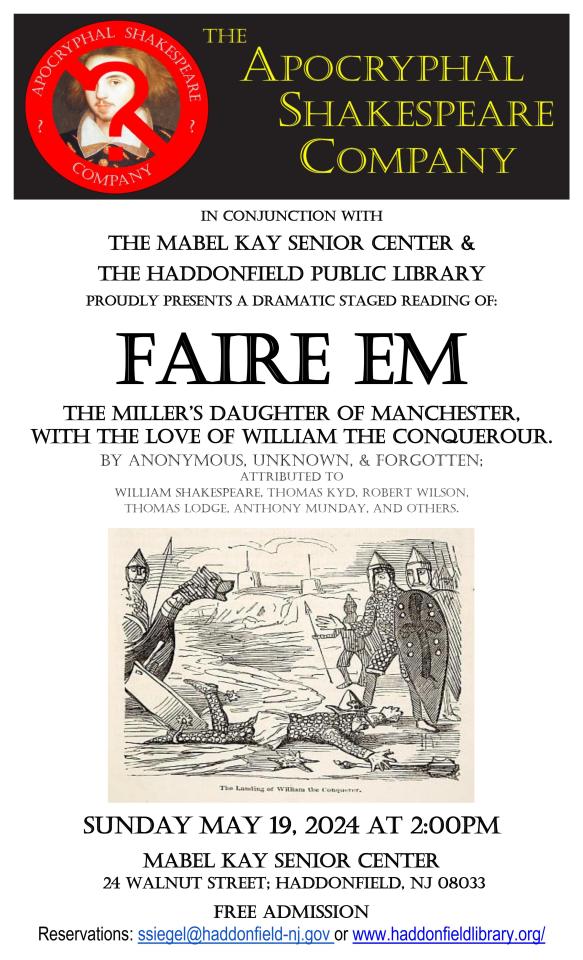
Fair Em, The Miller’s Daughter of Manchester
Director’s Notes:
The First Quarto of Fair Em, The Miller’s Daughter of Manchester is undated; however, its title page boasts that the play “was sundry times publicly acted in the honorable city of London by the right honorable the Lord Strange his servants.” The Lord Strange’s men performed in London from 1589 to 1593; so, we can place an estimated date of 1590 on Fair Em. This places Fair Em at the very beginning of Shakespeare’s career as a playwright and in the middle of Thomas Kyd’s and Christopher Marlowe’s.
Fair Em is actually two comedies in one. In the first story, William the Conqueror attempts to steal his best friend’s fiancé, Mariana. Moreover, he expects his friend to help him do it! But Mariana outwits them both and stays true to her man. In the second story, Fair Em is courted by four different men. She remains true to her first love, Manvile, and pretends to be deaf and blind to discourage the other suitors. Unfortunately, Manvile is also fooled and dumps Em to run off with a rich girl from the next town. Both plots play in alternating scenes until in Act V all the characters confront each other and the question of “true love” together. In both storylines we find that (as in real life) women are strong, intelligent, resourceful, loving, constant beings; while men are shallow, self-centered, sexist, idiots.
Fair Em has situations and complications that remind us of Shakespeare and Kyd. For example, Kyd wrote strong and faithful female characters such as Bel-imperia in The Spanish Tragedy. Likewise, Shakespeare gives us the fidelitous heroines of All’s Well That Ends Well, or The Winter’s Tale as compared to their fickle or jealous male counterparts. Moreover, in Two Gentlemen of Verona Shakespeareargues that the bond between two male friends certainly outranks the love between a man and a woman. After all, if you can’t make love to your best friend’s girl, who can you make love to?
Unfortunately, the surviving copy of Fair Em is a “Bad Quarto.” Whether written by Kyd, Shakespeare or the great Anonymous, we will never know what the full original script was like. Judging the merits of the lost original Fair Em based upon our surviving version would be like judging the merits of Hamlet based only on the 1603 “Bad Quarto” of Hamlet. They are both good plays and quite entertaining, but the mutilated versions no longer touch the peaks of excellence.
We hope you enjoy our production of Fair Em, The Miller’s Daughter of Manchester.
Douglas L. Overtoom
0 notes
Text
The Evolution of Entertainment: From Firelight Tales to Virtual Realities
Entertainment is an intrinsic aspect of human culture, spanning millennia of history. From the ancient tales shared around flickering campfires to the immersive virtual worlds of today, the evolution of entertainment mirrors the progression of society itself. This article explores the multifaceted journey of entertainment, tracing its development through the ages and examining the profound impact it has had on individuals and communities worldwide.
Ancient Origins: Storytelling and Rituals
The roots of entertainment stretch back to the dawn of civilization, where storytelling and communal rituals served as primary forms of amusement. In ancient societies, oral traditions passed down myths, legends, and folklore, captivating audiences with tales of gods, heroes, and mythical creatures. These stories not only entertained but also transmitted cultural values, preserved history, and fostered a sense of identity among disparate communities.
Furthermore, rituals and ceremonies played a crucial role in early entertainment, providing opportunities for social cohesion and spiritual expression. Whether through religious festivals, theatrical performances, or musical gatherings, ancient civilizations found solace and joy in coming together to celebrate shared beliefs and experiences.
The Renaissance: The Birth of Theater and Spectacle
The Renaissance marked a pivotal period in the evolution of entertainment, characterized by a resurgence of art, culture, and intellectual inquiry. The emergence of theater as a popular form of entertainment revolutionized the way people engaged with stories and ideas. Playwrights such as William Shakespeare captured the human experience with unparalleled depth and complexity, drawing audiences into worlds of tragedy, comedy, and romance.
Alongside theater, the Renaissance saw the rise of elaborate spectacles and pageants, where grandiose displays of music, dance, and visual effects dazzled audiences across Europe. From masquerade balls to royal tournaments, these events provided a welcome escape from the hardships of daily life, allowing people to indulge in fantasies of wealth, power, and romance.
The Industrial Revolution: Mass Media and Popular Culture
The Industrial Revolution ushered in a new era of entertainment, fueled by technological innovation and mass production. The invention of the printing press enabled the widespread dissemination of newspapers, magazines, and novels, democratizing access to information and entertainment for the masses.
Simultaneously, advancements in photography, cinema, and later television revolutionized the way stories were told and consumed. The birth of Hollywood in the early 20th century transformed cinema into a global phenomenon, captivating audiences with tales of adventure, romance, and suspense. Likewise, the advent of television brought the magic of moving images into living rooms around the world, forever changing the landscape of popular culture.
The Digital Age: Entertainment in the Information Age
The rise of the internet and digital technology has ushered in a new paradigm of entertainment, characterized by unprecedented access, interactivity, and convergence. From social media platforms to streaming services, the digital landscape offers a vast array of content tailored to individual tastes and preferences.
Moreover, advancements in virtual and augmented reality are blurring the lines between the physical and digital worlds, offering immersive experiences that transport users to fantastical realms and alternate realities. Video games, once relegated to the realm of niche hobbyists, have emerged as a dominant form of entertainment, attracting millions of players worldwide and generating billions in revenue.
The Future of Entertainment: Toward New Frontiers
As we stand on the cusp of a new era, the future of entertainment holds limitless possibilities and challenges. Emerging technologies such as artificial intelligence, blockchain, and extended reality promise to redefine the way we create, consume, and experience entertainment.
Furthermore, the democratization of content creation through platforms like YouTube, TikTok, and Patreon is empowering individuals to become creators in their own right, challenging traditional notions of authorship and ownership. However, amidst the proliferation of content and platforms, concerns about privacy, authenticity, and digital addiction loom large, raising important questions about the ethical and societal implications of our increasingly interconnected world.
Conclusion:
Entertainment is more than mere diversion; it is a reflection of our collective imagination, aspirations, and values. From the humble beginnings of oral storytelling to the dazzling spectacle of modern multimedia experiences, the evolution of entertainment mirrors the ebb and flow of human history. As we journey into the future, let us embrace the transformative power of entertainment to inspire, enlighten, and unite us in our shared quest for meaning and connection.
1 note
·
View note
Text
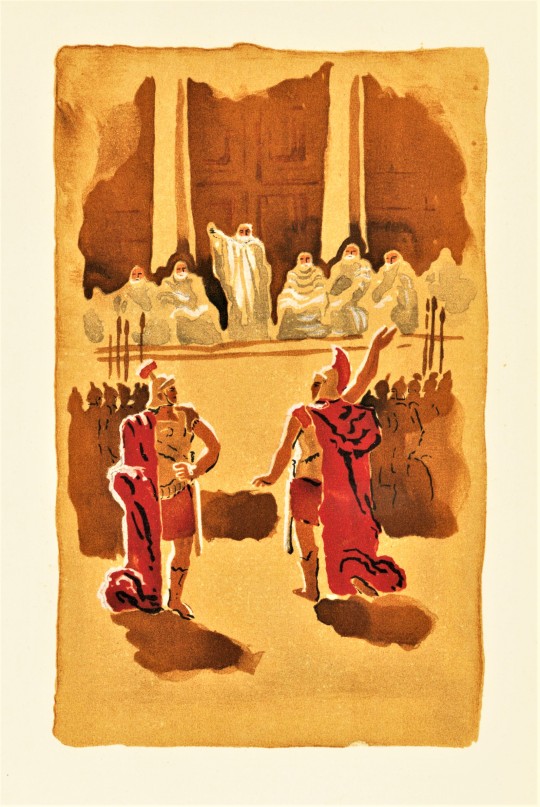
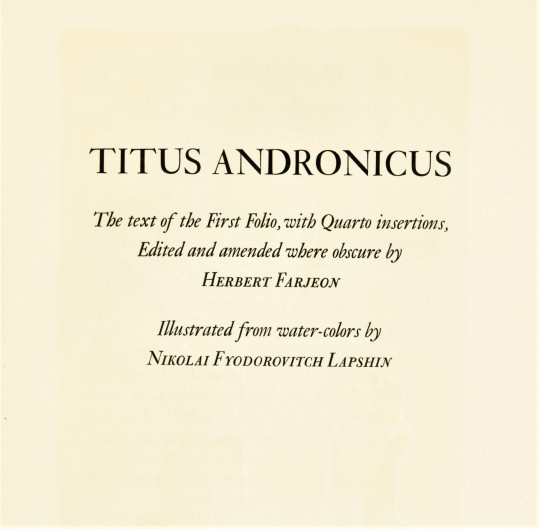
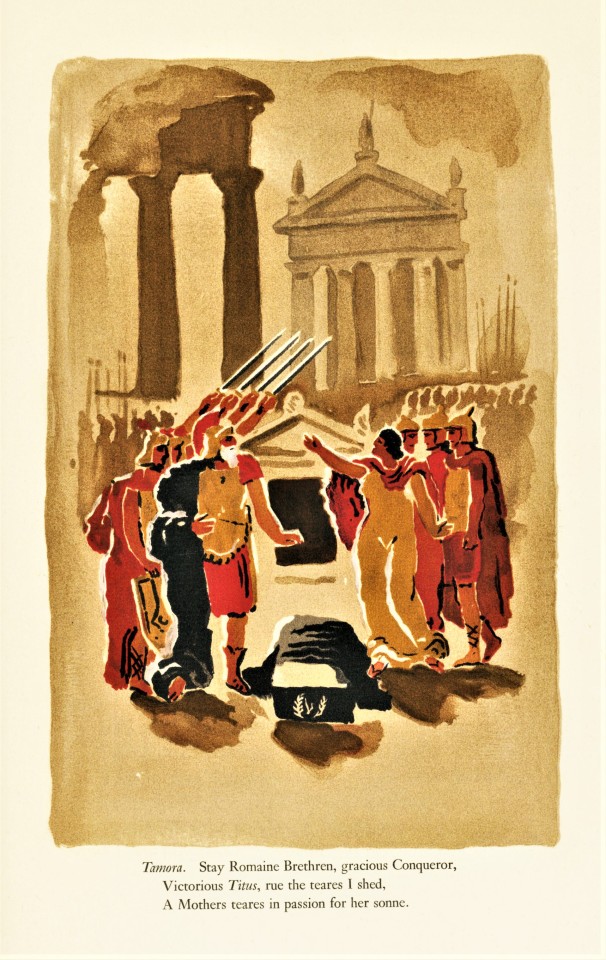
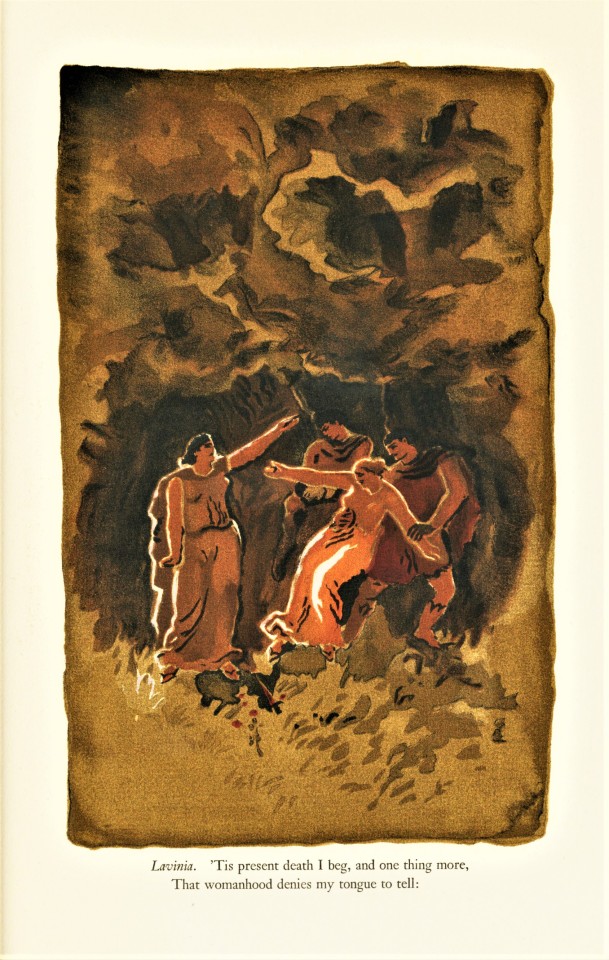
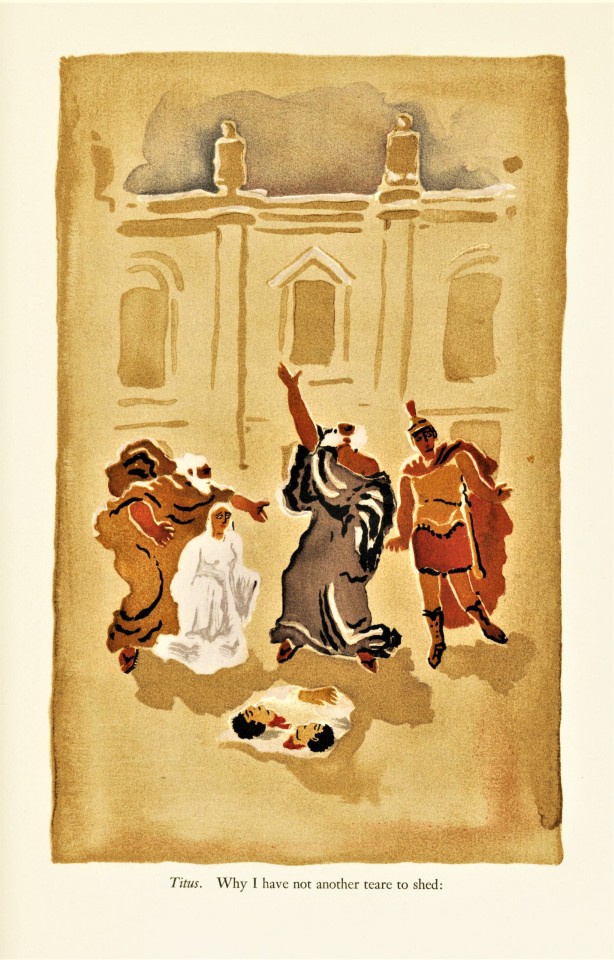
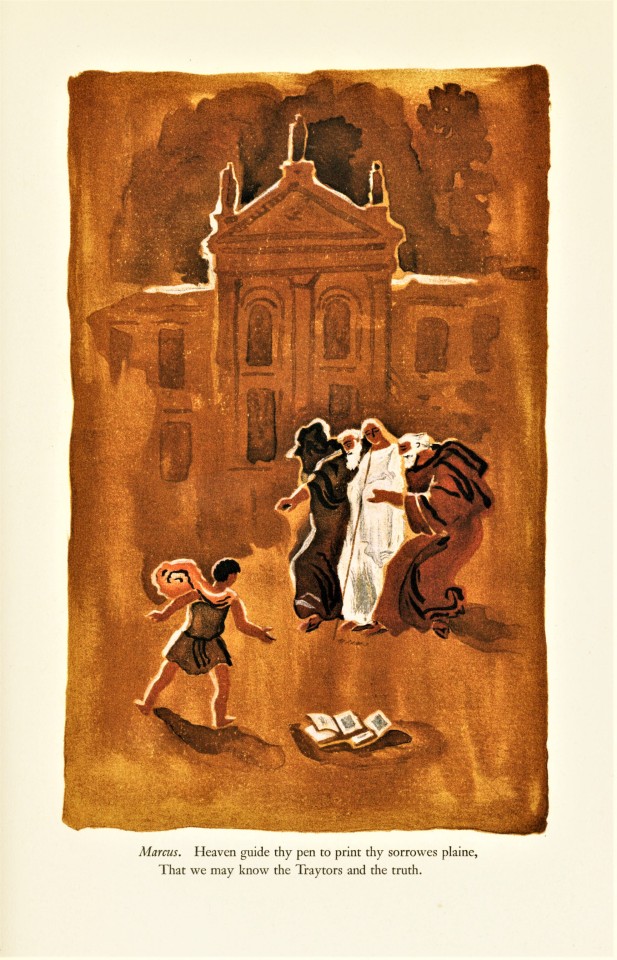

Shakespeare Weekend
This weekend we look at Shakespeare’s first tragedy, Titus Andronicus the thirty-third volume of the thirty-seven volume The Comedies Histories & Tragedies of William Shakespeare, published by the Limited Editions Club (LEC) from 1939-1940. The play was written between 1588 and 1593 and published three times in quarto before being included in the 1623 First Folio. Known as Shakespeare’s most violent and bloody play, Titus Andronicus was met with criticism throughout the 17th, 18th, and 19th centuries before regaining interest in the 20th century, culminating in Julie Taymor's quirky 1999 film adaptation Titus. Nevertheless, the play is still regarded as one of Shakespeare's most reviled plays.
Nikolai Fyodorovich Lapshin (1891-1942) illustrated the LEC’s edition of Titus Andronicus with his fresco-esque paintings. Lapshin was born in St. Petersburg and was a member of the Leningrad Union of Artists and was known for his watercolor landscapes and numerous children's book illustrations. His muddied scenes depicted throughout Titus Andronicus wonderfully capture the dolor and violence of the play set against a Roman landscape. To preserve Lapshin’s bold brush strokes and nuanced layers, LEC reproduced his images for the publication through chromolithography. The resulting depth and drama of the illustrations perfectly assist readers in imagining the grisly tragedies of the play.
The volume was printed in an edition of 1950 copies at the Press of A. Colish. Each of the LEC volumes of Shakespeare’s works are illustrated by a different artist, but the unifying factor is that all volumes were designed by famed book and type designer Bruce Rogers and edited by the British theatre professional and Shakespeare specialist Herbert Farjeon. Our copy is number 1113, the number for long-standing LEC member Austin Fredric Lutter of Waukesha, Wisconsin.
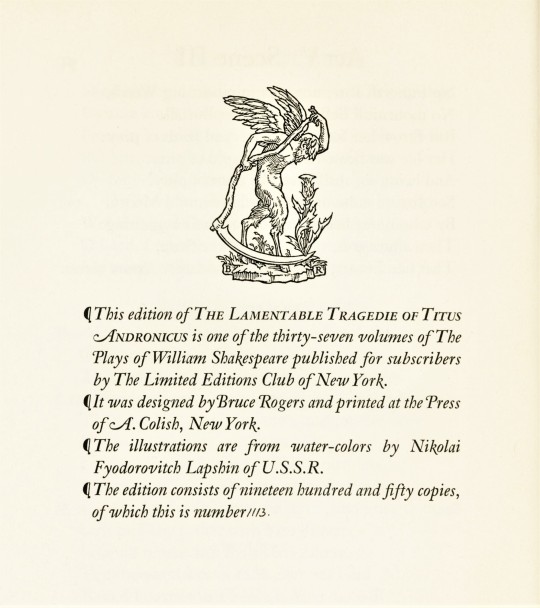
View more Limited Edition Club posts.
View more Shakespeare Weekend posts.
-Jenna, Special Collections Graduate Intern
#shakespeare weekend#shakespeare#limited edition club#lec#titus andronicus#nikolai fyodorovitch lapshin#press of a. colish#bruce rogers#herbert farjeon#chromolithography#Yay chromoliths!
84 notes
·
View notes
Text
Untold Stories of Shakespeare's Life

Untold Stories of Shakespeare's Life
William Shakespeare is one of the most celebrated writers in literary history, known for his timeless plays and complex characters. Yet, despite his fame, there are still many untold stories and lesser-known aspects of his fascinating life. In this section, we will delve into some of those untold stories and explore the mysterious side of Shakespeare's existence. From his early years to his romantic life and the lost years, we will uncover intriguing facts that shed new light on the bard's life. Key Takeaways: - Shakespeare's life is full of mysteries and untold stories. - Exploring the lesser-known aspects of his life can shed new light on his works. - From his early years to his romantic life and lost years, there are many parts of Shakespeare's life that are still enigmatic. - By uncovering these untold stories, we can gain a deeper understanding and appreciation for the life and works of this literary giant.
Shakespeare's Early Life
Shakespeare's early life is shrouded in mystery, with few records available to provide an accurate account of his upbringing. Born in 1564 in Stratford-upon-Avon, England, he was the third of eight children. His father, John Shakespeare, was a glove-maker and a prominent figure in the town. Shakespeare likely attended the local grammar school, where he received a classical education in languages such as Latin and Greek. The Influences on Shakespeare's Artistic Development Shakespeare was heavily influenced by the cultural and historical events of his time. The Elizabethan era was a period of great artistic flourishing, with literature, theater, and music thriving. Shakespeare was exposed to a range of works by other writers, including the plays of Christopher Marlowe and the sonnets of Petrarch. In addition, Shakespeare was influenced by the political and social climate of England. Queen Elizabeth I was a strong and influential figure, and Shakespeare's plays often reflected the values and concerns of the time. Interesting Facts about Shakespeare's Childhood Fact Description Shakespeare's Education He attended a free school for boys where he learned Latin and Greek. His Father's Financial Troubles Shakespeare's father experienced financial difficulties and was at one point unable to pay for his son's school fees. His Sister's Death Shakespeare's younger sister, Anne, died when she was just seven years old. The Events that Led to Shakespeare's Career as a Playwright At age 18, Shakespeare married Anne Hathaway, who was eight years his senior. Shortly after their marriage, Shakespeare left Stratford-upon-Avon and went to London to pursue a career in the theater. He began working as an actor and a playwright, and his first play, "Henry VI, Part One," was performed in 1590. Over the course of his career, Shakespeare wrote 38 plays and 154 sonnets, and his works continue to be studied and performed to this day.
Shakespeare's Short Biography
William Shakespeare is widely regarded as the greatest playwright in the history of English literature. Born in 1564 in Stratford-upon-Avon, England, Shakespeare was the third of eight children. His father, John Shakespeare, was a successful glove maker and politician, while his mother, Mary Arden, came from a wealthy and prestigious family. Shakespeare attended King Edward VI School in Stratford, where he received a classical education in Latin and Greek. Little is known about his life between the ages of 18 and 28, commonly referred to as the "lost years." In 1582, at the age of 18, Shakespeare married Anne Hathaway, who was eight years his senior. The couple had three children: Susanna, and twins Hamnet and Judith. In the late 1580s, Shakespeare began his career as an actor and playwright in London. Shakespeare's plays were performed for both the general public and members of the royal court. He wrote a total of 38 plays, including comedies, tragedies, and histories, as well as numerous sonnets and poems. Throughout his career, Shakespeare was affiliated with several different theatre companies and became a shareholder in the famous Globe Theatre. He retired to Stratford in the early 17th century and died on April 23, 1616, at the age of 52. Despite his relatively short life, Shakespeare's legacy and influence on literature and language are immeasurable. He is often referred to as the "Bard of Avon" and his works continue to be studied, performed, and enjoyed around the world.
Shakespeare's Romantic Life
William Shakespeare is known for penning some of the most enduring plays and sonnets in the English language, but what about his romantic life? Who did Shakespeare marry, and what was their relationship like? In 1582, at the age of 18, Shakespeare married Anne Hathaway, a woman eight years his senior. At the time, Hathaway was already pregnant with the couple's first child, Susanna, who was born just six months after the wedding. The couple went on to have twins, Hamnet and Judith, two years later. "I do thee wed, / with a ring, with a ring." - William Shakespeare, The Tempest While their marriage was by all accounts a scandal at the time due to the age difference and pregnancy, there is little information available on the couple's relationship. Some speculate that Shakespeare's frequent trips to London may have put a strain on their marriage, while others believe that Shakespeare had affairs with other women. In his will, Shakespeare famously left his second-best bed to Hathaway, a gesture that some view as a snub but may have been a traditional bequest for a spouse. Despite the lack of concrete information, Shakespeare's marriage to Hathaway and the circumstances surrounding it continue to intrigue scholars and fans of the bard.
The Lost Years
Shakespeare's life contains a mysterious gap known as the "Lost Years." This period spans from 1585 to 1592, during which there is no documented information about his whereabouts or activities. The lack of information has led to many theories and speculations about what Shakespeare might have been doing during this time. One theory suggests that Shakespeare may have been working as a schoolteacher, as it was a common profession at the time. However, there is no concrete evidence to support this claim. Another theory proposes that Shakespeare may have traveled to continental Europe to study and develop his writing skills. This theory is supported by the fact that during this time, England was experiencing a resurgence of interest in classical Greek and Roman literature, which could have influenced Shakespeare's writing style. Some even speculate that Shakespeare may have been involved in illegal activities during the Lost Years, such as poaching or smuggling. However, there is no concrete evidence to support these claims, and they remain mere speculations. Despite the lack of information, the Lost Years continue to capture the imagination of Shakespeare enthusiasts around the world. They represent a mysterious and intriguing aspect of the bard's life, offering a glimpse into what may have been a formative period in his artistic development.
Shakespeare's Influences and Collaborations
Shakespeare was a prolific writer whose work continues to inspire and entertain people. His plays have been translated into numerous languages and adapted into countless films, TV shows, and other media. But who influenced Shakespeare's writing, and with whom did he collaborate during his career? While Shakespeare's genius is undeniable, he was not an island. He drew inspiration from the work of other writers and built upon their ideas to create his own unique style. For example, he borrowed heavily from the works of Plutarch for his Roman plays and drew upon stories from Italian novellas for his tragedies. Shakespeare also collaborated with other playwrights during his career. He worked with John Fletcher on several plays towards the end of his career, including The Two Noble Kinsmen and Henry VIII. Collaborating with other writers allowed Shakespeare to experiment with new ideas and also gave him a chance to learn from his peers. “No man is an island, entire of itself; every man is a piece of the continent, a part of the main.” - John Donne Shakespeare's collaborations with other writers were not without their challenges. For example, his partnership with Thomas Middleton on Timon of Athens was fraught with disagreements over the direction of the play. Despite these challenges, however, Shakespeare's collaborations helped shape his work and contributed to his success. Collaborators Works John Fletcher The Two Noble Kinsmen, Henry VIII George Peele Titus Andronicus Thomas Middleton Timon of Athens In addition to his collaborations with other playwrights, Shakespeare was influenced by a wide range of literary and cultural sources. He drew inspiration from the works of Chaucer, Ovid, and the Bible, as well as from contemporary events and social issues. These influences helped shape his writing and contributed to his unique voice and style. By exploring Shakespeare's influences and collaborations, we gain a deeper understanding of his work and his place in literary history. We can see how he built upon the work of others to create something truly remarkable and how he collaborated with his peers to push the boundaries of what was possible. These untold stories add depth and nuance to our understanding of Shakespeare's life and work.
Shakespeare's Contemporaries and Rivals
Shakespeare lived in an era of great literary creativity, and his contemporaries were some of the most talented writers of their time. One notable contemporary of Shakespeare was Christopher Marlowe, who was a prominent playwright until his untimely death in 1593. Marlowe's works, such as "Doctor Faustus", were highly popular and influential during Shakespeare's time. Another significant playwright was Ben Jonson, who was a close associate of Shakespeare. Despite their friendship, Jonson was known to be critical of Shakespeare's works, once stating that "he had little Latin and less Greek". However, this did not diminish Shakespeare's reputation as a master of the English language. Robert Greene was also a notable contemporary of Shakespeare, and some scholars believe that he may have been the one who first referred to Shakespeare as an "upstart crow". This insult suggested that Shakespeare was an outsider in the literary world, though he would eventually rise to become one of its greatest figures. Shakespeare's Rivals While Shakespeare had many contemporaries who were also playwrights, some were considered to be his rivals. Among these was Thomas Kyd, who was known for his powerful and dramatic plays. Kyd's works, such as "The Spanish Tragedy", were popular during Shakespeare's time and may have had an influence on his own writing. Another rival of Shakespeare was John Webster, who was known for his dark and violent plays. Webster's works, such as "The Duchess of Malfi", were considered to be controversial during his time and have continued to be studied and performed to this day. Shakespeare's Collaborators Shakespeare was not only a playwright in his own right, but he also collaborated with other writers on several occasions. One of his most famous collaborations was with John Fletcher, who co-wrote three plays with Shakespeare. These works, such as "The Two Noble Kinsmen", were highly regarded by audiences and critics alike. Shakespeare also collaborated with Thomas Middleton on the play "Timon of Athens", though the extent of Middleton's contributions to the work is still a matter of debate among scholars. Overall, Shakespeare's contemporaries and rivals played an important role in shaping the literary landscape of his time. While some may have considered him to be an outsider, Shakespeare's undeniable talent and creativity ensured that he would leave a lasting impact on the world of literature.
Shakespeare's Personal Beliefs and Politics
Shakespeare's plays are known for their exploration of human nature and society. However, the personal beliefs and political views of the playwright himself remain somewhat of a mystery. While some scholars argue that Shakespeare was a devout Christian, others believe that he may have been influenced by other religious beliefs, such as Catholicism. Additionally, his views on politics and social issues are also unclear, although it is believed that he may have held conservative views due to his association with the ruling class. "All the world's a stage, and all the men and women merely players: they have their exits and their entrances; and one man in his time plays many parts." - As You Like It It is believed that Shakespeare's plays were meant to entertain rather than serve as a platform for political or religious messaging. However, his works do reflect the social and political climate of his time, offering commentary on issues such as religion, power, and gender roles. Shakespeare's personal beliefs also remain a topic of debate among scholars. Some argue that his works suggest a skepticism towards religion, while others point to the religious imagery and themes present in his plays as evidence of his Christian faith. Interesting Fact Untold Story Shakespeare's play, The Merchant of Venice, has been interpreted as both anti-Semitic and sympathetic to Jewish people. There is speculation that Shakespeare may have had Jewish friends or acquaintances, which could have influenced his portrayal of Jewish characters in the play. Shakespeare's play, Measure for Measure, explores themes of justice, morality, and sexuality. There is debate over whether the play reflects Shakespeare's personal views on these issues or is simply a reflection of the cultural and political context of his time. Overall, the personal beliefs and political views of Shakespeare remain a subject of debate and speculation. While his works offer insight into the social and political climate of his time, we may never know the full extent of his personal beliefs and opinions.
Shakespeare's Legacy and Unanswered Questions
William Shakespeare left behind an immense legacy that has endured for centuries. His plays have been translated into countless languages, adapted for film and stage, and studied in schools and universities around the world. However, despite his enduring popularity, there are still many unanswered questions about Shakespeare's life and works that continue to puzzle and intrigue scholars and enthusiasts alike. The Authorship Question One of the most hotly debated topics surrounding Shakespeare's legacy is the issue of authorship. Although most scholars agree that Shakespeare was the author of the plays attributed to him, there are some who dispute this claim, arguing that the plays were written by someone else or that Shakespeare collaborated with other writers. One theory that has gained traction in recent years is that the plays were actually written by Edward de Vere, the 17th Earl of Oxford. Proponents of this theory point to similarities between Oxford's life and the themes and characters in the plays, as well as evidence of his patronage of theater companies and involvement in the literary world. However, while the authorship question remains unresolved, most scholars continue to attribute the plays to Shakespeare based on the available evidence. The Extent of Shakespeare's Works Another question that continues to puzzle scholars is the true extent of Shakespeare's works. While most people are familiar with Shakespeare's plays, he also wrote poetry, including the famous sonnets that are still studied and admired today. However, some scholars believe that there may be other works by Shakespeare that have been lost or remain undiscovered. In particular, there is speculation that he may have written plays that have not survived, or that he may have been involved in collaborations or adaptations that are not currently attributed to him. While there is no definitive answer to these questions, the ongoing investigation into Shakespeare's works and influences continues to shed new light on the bard's life and legacy. The Real Shakespeare Finally, there are still many mysteries surrounding Shakespeare's personal life, including his relationships, beliefs, and politics. Despite extensive research into his life and times, we still know relatively little about the man himself. For example, while we know that Shakespeare was married to Anne Hathaway, there is little information about their relationship or family life. Similarly, we know that he lived in London during a time of religious and political upheaval, but we know little about his personal beliefs or affiliations. As we continue to uncover new information and untold stories about Shakespeare's life and works, we gain a deeper understanding of the man behind the plays. While many questions remain unanswered, the enduring popularity of Shakespeare's works is a testament to their enduring power and relevance.
Conclusion
In conclusion, exploring the untold stories and lesser-known aspects of Shakespeare's life reveals a deeper understanding of the man behind the works. From his enigmatic "Lost Years" to his influences and collaborations, there is still much to be discovered about this iconic figure. By delving into Shakespeare's personal beliefs and politics, we gain insight into the cultural and social context of his time. Moreover, exploring his relationships with contemporaries and rivals provides a richer perspective on his role within the literary scene of the day. Ultimately, the enduring legacy and unanswered questions surrounding Shakespeare's life contribute to his mystique and allure. However, by uncovering these untold stories, we can truly appreciate the depths of his genius and the lasting impact he has had on the world of literature. Thank you for joining us on this journey of exploration into the untold stories of Shakespeare's life. We hope that you have enjoyed learning about this iconic figure and have gained a fresh appreciation for his works and legacy. Untold Stories of Shakespeare's Life
FAQ
What are the untold stories of Shakespeare's life? In this section, we will delve into the untold stories and lesser-known aspects of Shakespeare's fascinating life. Discover intriguing facts and explore the mysterious side of the bard's existence. What can I learn about Shakespeare's early life? Learn about Shakespeare's early years, including his upbringing, education, and the influences that shaped his artistic development. Uncover lesser-known facts about his childhood and the events that led him to become one of the greatest playwrights of all time. Is there a short biography of Shakespeare available? Gain an overview of Shakespeare's life through a concise biography. Explore his major works, significant achievements, and the impact he had on the world of literature. Discover lesser-known aspects of his career and personal life. Who did Shakespeare marry? Delve into the romantic life of Shakespeare and learn about his marriage to Anne Hathaway. Read the full article
#ArtisticDevelopment#CollaborationinTheatre#ElizabethanEra#HistoricalInfluences#LiteraryHistory#LostYears#Shakespeare'sEarlyYears#Shakespeare'sEducation#Shakespeare'sRomanticLife#ShakespeareanCollaborators#ShakespeareanInfluences#ShakespeareanLegacy#ShakespeareanMystery#ShakespeareanPlays#ShakespeareanQuotes#ShakespeareanTrivia#TheatricalCareer#UntoldStoriesofShakespeare'sLife
0 notes
Text
Insult in Style: 25 of the best Shakespearean insults
Welcome, dear readers, to a world of Shakespearean insults. Words were wielded like swords and insults danced upon the stage. In the realm of William Shakespeare, insults were not mere slights, but masterpieces of linguistic artistry. From the depths of tragedy to the heights of comedy, Shakespeare’s plays abound with clever, biting, and unforgettable insults. In this article, we embark on a journey through some of the Bard’s most famous works, exploring the realm of Shakespearean insults and uncovering the wit and creativity that made them legendary.
Thou art a saucy, rampallian, whoreson caterpillar!” – Henry IV, Part 1
“Thou leathern-jerkin, crystal-button, knot-pated, agatering, puke-stocking!” – Henry IV, Part 2
“Thou art a sheep-biting, shiny-breeched varlet!” – Henry IV, Part 2
“Thou art a fusty nut with no kernel!” – Troilus and Cressida
“Thou art a most notable coward, an infinite and endless liar, an hourly promise breaker, the owner of no one good quality.” – All’s Well That Ends Well
“Thy tongue outvenoms all the worms of Nile.” – Cymbeline
“Thou art as loathsome as a toad.” – Titus Andronicus
“Thou art a boil, a plague sore.” – King Lear
“Thou art a base, proud, shallow, beggarly, three-suited, hundred-pound, filthy worsted-stocking knave.” – King Lear
“Thou art a fishmonger, a knave, a coward, one that drinks the liquor of villainy.” – Hamlet
“Thou art a flesh-monger, a fool and a coward.” – Measure for Measure
“Thou lump of foul deformity!” – Richard III
“I do desire that we may be better strangers.” – As You Like It
“Out of my sight! Thou dost infect my eyes.” – Richard III
“Thou art as loathsome as a toad.” – Titus Andronicus
“Thou art a base, proud, shallow, beggarly, three-suited, hundred-pound, filthy worsted-stocking knave.” – King Lear
“Thou art a boil, a plague sore.” – King Lear
“Thou art a natural coward without instinct.” – Henry IV, Part 1
“Thou damned and luxurious mountain goat!” – Henry V
“Thou art a most notable coward, an infinite and endless liar, an hourly promise breaker, the owner of no one good quality.” – All’s Well That Ends Well
“Thou art a villainous abominable misleader of youth.” – A Midsummer Night’s Dream
“Thou art a tedious fool, and a knave of a woman.” – Twelfth Night
“Thou art a very ragged Wart.” – Henry IV, Part 2
“Thou poisonous bunch-backed toad!” – Richard III
“Thou art a flesh-monger, a fool, and a coward.” – Troilus and Cressida
As we bid farewell to the world of Shakespearean insults, we are left in awe of the language that continues to captivate audiences even centuries later. From the searing insults hurled between star-crossed lovers to the cutting remarks flung in moments of political intrigue, Shakespeare’s words have left an indelible mark on the realm of verbal warfare. So, the next time you find yourself in need of a clever retort or a playful jab, perhaps you can draw inspiration from the Bard himself. But remember, let these words be spoken in the spirit of jest and admiration for the artistry of language, for in the end, it is the power of words that truly makes Shakespeare’s insults immortal.
Psst! Did you like those and wish to use them? Fear not, dear reader, because we can print whichever quote you desire on your product of choice. You can do stickers, mugs, notebooks, T-shirts, and much more. Email us at ([email protected]) and don’t miss this opportunity!
0 notes
Text
Exhibits and collectors editions mark 400th anniversary of Shakespeare's First Folio
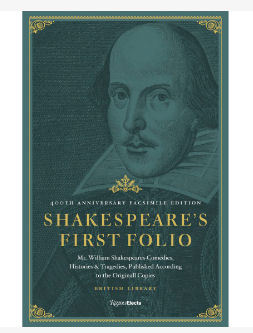
NEW YORK
On the 400th anniversary of Shakespeare's First Folio, rare originals are being displayed and publishers are offering collectors editions of Shakespeare's plays, including one that sells for $1,500.
Scholars believe that between 200-300 copies still survive from the late 1623 release of “Mr. William Shakespeares Comedies, Histories & Tragedies." Presided over by two friends and former colleagues of Shakespeare, who had died in 1616, the Folio ensured that lasting texts existed for “Macbeth,” “Twelfth Night” and other cornerstones of Western literature. In Shakespeare's lifetime, many of his works were unpublished or available only in cheap paperback editions.
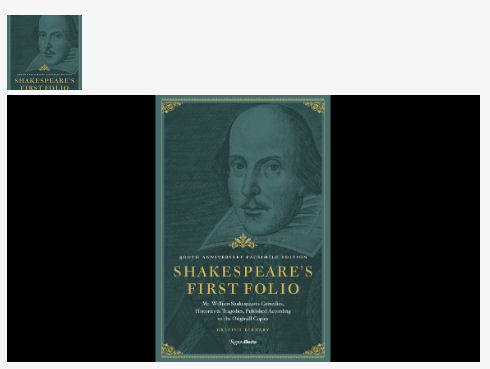
“Without the First Folio we would have lost a world of words,” Gregory Doran, artistic director emeritus of the Royal Shakespeare Company, writes in the introduction to “The Complete Plays” of Shakespeare, a new publication.
First folios have been on exhibit everywhere from the British Museum to the New York Public Library and at least two major book projects will mark the anniversary.

The British Library is collaborating with Rizzoli Books in New York on “Shakespeare’s First Folio: 400th Anniversary Facsimile Edition,” contained within a slipcase cover. With a list price of $135, the book is 928 pages and includes an introductory booklet co-written by Adrian Edwards, head curator of the British Library’s Printed Heritage Collections.
The most ambitious, and exclusive project, is “The Complete Plays,” a limited edition from the Folio Society, an employee-owned company in London that puts out customized volumes ranging from "Beowulf" to George R.R. Martin's “A Song of Ice and Fire” series. The Society has printed just 1,000 copies of the 3-volume box set, with a list price of $1,500. Besides Doran's introduction, the Folio Society release includes a foreword by Dame Judi Dench. Each set is hand-numbered by illustrator Neil Packer.

More than three-quarters of “The Complete Plays” have already sold, according to the publisher.
“In an era when everything seems disposable, I feel like there's a good market for fine editions of classic books,” says Folio Society publishing director Tom Walker.
The First Folio was daring, even audacious for its time, when such publications were “reserved for learned treatises, hefty genealogical texts, books of religious or historiographical importance, or even works by monarchs,” according to Shakespeare scholar Chris Laoutaris. Before Shakespeare the only playwright known to have been so honored was his contemporary Ben Jonson, who honored himself by overseeing “The Workes of Benjamin Jonson” in 1616. While the British Museum edition is relatively affordable, the Folio Society's production is closer to the intended market for the original release.

"Only those with deep pockets, and the space to read them, could afford such luxurious products," says Laoutaris, an associate professor at the Shakespeare Institute in the playwright's native Stratford-On-Avon and author of “Shakespeare’s Book: The Intertwined Lives Behind the Fist Folio,” which came out this year. “When it was released, the First Folio cost more to produce than any other collection of plays in history up until that point.”
The Folio proved successful enough that an updated edition, the Second Folio, was published in 1632, a Third Folio in 1663 and a fourth in 1685. By the 19th century, the original Folio was becoming a valued piece of history, in part through the efforts of collectors Henry and Emily Folger, and a symbol of might for the British Empire. Sir George Grey, who had served as a colonial governor, established libraries worldwide that included copies of the First Folio.

“For Grey, the First Folio represented the pinnacle of culture, but specifically English culture,” Laoutaris says. “He sought nothing less than the obliteration of the language and culture of the native populations in Australia, New Zealand and South Africa, nurturing a desire to replace these with the English language and its literary products."
The United States is home to more than half of all existing copies of the First Folio, followed by the United Kingdom and Japan, with handfuls of editions also existing in Germany, France, South Africa, Australia and New Zealand among other countries. For antiquarians, the First Folio is the greatest of prizes: One sold for $9.9 million in 2020. For scholars and countless admirers, the Folio is secondary to the plays themselves.

"Shakespeare’s stature, for the past 400 years, is a reflection of his plays’ staying power on the stage far more than their survival in a collected works," says James Shapiro, a professor of English and comparative literature at Columbia University and author of several books on Shakespeare.

“You can buy a Ben Jonson folio for a few thousand dollars; a Shakespeare folio will cost you millions. The reason for this simple: the remarkable afterlife of his comedies, histories, and tragedies in theaters throughout the world.”
0 notes